




BY WM. STEVEN HUMPHREY
Hello fellow voters, and welcome to the Portland Mercury’s Election and Endorsement Issue! And let me tell you right from the get-go, I am fucking exhausted!
Don’t get me wrong—Mercury folks are nothing if not political junkies who live and breathe reporting on (and giving sassy-ass side-eye to) our local government. And normally, while researching and writing our election endorsements isn’t a trip to the cotton candy factory… it’s doable. However, this election season? It’s a whoooooole new (fucking exhausting) ballgame!
Thanks to charter reform, Portland has flipped the way our government operates on its head (in a very good way), dumping our creaky, undemocratic commission form of governance, and replacing it with a brand spankin’ new 12-person council representing four districts, WHILE ALSO slapping on ranked choice voting to boot! And did candidates show up for it? OH DEAR GOD, DID THEY. By the filing deadline, we got a whopping 118 (!!) candidates running for the offices of council, mayor, and auditor. That’s super good news for democracy, and very nearly put the itty-bitty Mercury staff IN OUR GRAVES.
But did we accomplish the task of spending the past year contacting and questioning all 118 candidates, studying their responses, doing our own research, whittling that list down to six candidates in each race who we personally interviewed and then ranked to give you the absolute best (and most reliable!) election endorsements in the city of Portland? GOT-DAMNED RIGHT WE DID. Because that’s what we do here, that’s how much we care about this city, and that’s how much it means to us that our future leaders treat you with the respect you deserve. So that said…
If you use our endorsements to fill out
your ballot, would you please show your respect to us and our year of diligent work by contributing $5 (at portlandmercury.com/ contribute) to keep the Mercury alive, kicking, and writing even more endorsements in the future? Trust me, your small contribution goes directly into the pot that funds our editorial work, and nowhere else. Well, that’s not true… it could also go to our funeral services incurred by working ourselves to death—but that’s still editorial, right? So toss us a tip… we earned it.
Oh! And while you’re browsing this issue, don’t miss our other great articles—such as a dive into Portland’s small donor program, what to expect from voters and our new City Council, a terrifically interesting story on how we originally got our janky commission form of government (thanks to a hurricane), a damn near exhaustive list of Rene Gonzalez’s many sins, plus a lot of fun stuff including an election-themed Trash Report, a hilarious ranked choice practice sheet, AND the triumphant return of Portland’s most beloved asshole, FRANK CASSANO. (Please don’t applaud, he’ll just shit on you.) So in closing, I hope you enjoy our endorsements and find them useful. Be sure to keep supporting your local journalists… yes, even the ones that don’t work for the Mercury because they have to endure their insufferable bosses who ignore their excellent reporting and endorse Rene Gonzalez anyway. And for god’s sake, VOTE! Democracy doesn’t work if you ignore it. And with that sage bit of wisdom, I am going to fucking bed and sleeping until the next election rolls around. DO NOT WAKE ME UP.
Yer always pal, Wm. Steven Humphrey Editor-in-Chief Portland Mercury (he/him)





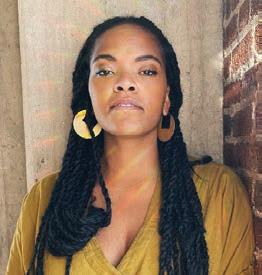





James Deeley
ADVERTISING COORDINATOR
Evanne Hall
SENIOR ACCOUNT EXECUTIVES
Anna Nelson
Katie Peifer
COMPTROLLER
Katie Lake
ART DIRECTOR
Corianton Hale
ASSOCIATE ART DIRECTOR
Anthony Keo
PRODUCTION
David Caplan, Feedback Graphics
MARKETING DIRECTOR
Caroline Dodge
SOCIAL MEDIA MANAGER
Christian Parroco
EMAIL MARKETING SPECIALIST
Tonya Ray
VIDEO PRODUCTION DIRECTOR
Shane Wahlund
Technology & Development
HEAD OF PRODUCT
Anthony Hecht
SENIOR DEVELOPER
Nick Nelson
SENIOR DEVELOPER
Michael Crowl
IT MANAGER
Grant Lewicki-Hendrix
Bold Type Tickets
CUSTOMER SOLUTIONS MANAGER
Kevin Shurtluff
CLIENT SOLUTIONS MANAGER
Diana Schwartz
PROJECT MANAGEMENT
CLIENT & CUSTOMER SOLUTIONS REPRESENTATIVE
Campy Draper
CUSTOMER SOLUTIONS REPRESENTATIVE
Katya Schexnaydre
Circulation
distribution@portlandmercury.com
Administrative
COO/CFO
Rob Crocker
CHIEF OF STAFF
Toby Crittenden
CHAIRMAN AND PUBLISHER
Brady Walkinshaw
BY ELINOR JONES ELECTION TRASH!
Hello there, and welcome to this very special Trash Report, which is all about elections! Listen, if shit goes south on election day and our constitutional rights to things like a free press are dissolved, then there will be no more cool newspapers like this one, so if you’re reading this in print, keep your copy—it could be a collector’s item some day!
It’s been such a wild and crazy election year, and what good is enduring trauma if we can’t laugh about it together? If the American electoral system and the discourse surrounding it are lemons, then please consider this column your complimentary lemonade.

The race for our new King or Queen of Democracy is on the top of all our minds. Donald Trump recently stated that he would not run for president again in four years if he loses this time. Of course, Trump also says that he’s 6’4” and that he won’t sign a national abortion ban and that he loves his son, Don Jr. The man’s a liar.
Meanwhile, Kamala Harris and Tim Walz have brought sunshine and rainbows into the Democratic ticket that had been sagging under Biden. It’s been great! Remember how depressed we were in late June? Man, what a dark time. Now, instead of being depressed about the likelihood of a Biden loss, we can be depressed about an otherwise promising ticket that won’t call for an end to Israel’s campaign that has killed tens of thousands of Palestinians. I already used the lemonade metaphor, so let’s just say that sometimes life gives you yesterday’s coffee grounds, and you can use them to make iced coffee, because isn’t that how cold-brew is made, maybe?
One thing Harris and Walz have going for them is that not only are they more human-seeming than Trump, they’re also much less buzzard-seeming than RFK Jr. The latest WTF story about him is that he’d allegedly been having a “personal rela tionship” with New York magazine writer Olivia Nuzzi who is both 39 years his
junior and not his wife. Part of me wonders if his campaign leaked this story because they want people to think about him getting handsy with a living human woman instead of some decaying animal carcass he found on a New England highway. Honestly, not a bad strategy.
Here in Oregon, this year we get to vote on whether each state resident could receive a universal basic income of $1,600 per year. The idea is intriguing! Very pandemic-chic, very Andrew Yang-coded. But hey, anyone else remember that there was just a wholeass month-long teacher’s strike to increase funding, only to find out that there is sim-
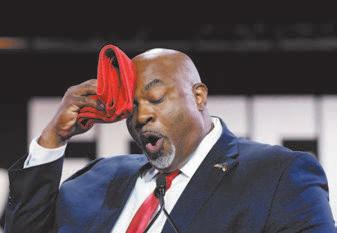
ply no money, their hands are tied, and now kids miss school because it’s 100 degrees in September and there’s not enough AC to go around? So HOW in THE ABSOLUTE FUCK are we finding a way to raise money to give us back the money instead of simply getting money to institutions that need it?
Over in North Carolina, their Lt. Governor and gubernatorial candidate Mark Robinson (R) has been leaving comments on porn sites referring to himself as a “black NAZI” and voicing (typing?) support for bringing back slavery. As of this writing, Robinson has shown no interest in stepping out of the race. Now, North Carolina is a swing state, and this down-ballot disaster could keep more Rs at home, or get more D support overall, which could have national ramifications. This is me making iced tea out of a bunch of random weeds I found in my yard, btw. In other news out
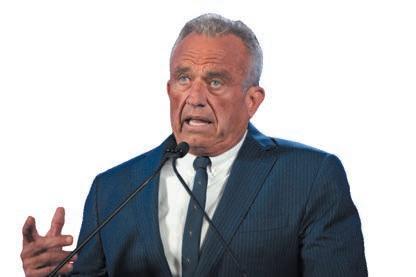
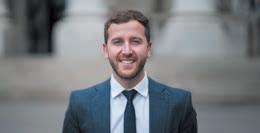
“I’m on the fence. Neither candidate has articulated a clear platform on the economy.”

“If I can’t vote for RFK Jr. or Tulsi Gabbard, I’m not voting for anyone.”

“I want to vote for Harris… but I need to do my own research first.”

FOR PRESIDENT?
“Oh well, here’s a ‘clear platform’ for you… you are a blithering, halfwit IMBECILE! Were you buried alive under a pile of your own shit from 2016 to 2020? Newsflash, you simpering jagoff: Trump is (hello!) a convicted fucking felon who spent his entire tenure as president licking the shriveled ballsacks of his fellow billionaires! So I guess now you’re returning the favor? Here’s all you need to know about the “economy,” dipshit: The world will gladly pay you to SHUT YOUR GAPING PIE HOLE, and cram that fence the rest of the way up your ass, you naive, insipid sack of wet laundry! NEXT!”

“Good one, you ridiculous, drooling turd. Oh, you forgot your third choice… voting to die in a pile of syphilis-infected donkey vomit, because unintelligible slack-jawed morons such as yourself don’t deserve democracy, let alone sharing opinions that make everyone stupider after hearing them! RFK Jr. is an animal-abusing sociopath, Tulsi Gabbard is the only person on earth more stupefyingly ignorant than you, and if you still refuse to vote for the only rational person on this ticket? Maybe you should move to a different country… such as the United States of Insufferable Fuckface Mouth-Breathers! NEXT!”

“Oh you need to do ‘research’? Then if you’re capable, read the Portland Mercury because this group of moronic, illiterate dope smokers are the only imbeciles alive who coul d match your subatomic level of idiocy. Just look at the Mercury’s election issue! It has all the intelligence of a monkey defecating on a snow cone! Seriously, the pandemic had ONE job… send these herpes-riddled, dimwit stoners to the unemployment line—and it couldn’t even do THAT right! In fact, maybe you should ‘research’ how a bunch of lazy, fart-mouth, brain-damaged millennials got this job in the first place, and… aw shit, I’m fired again, aren’t I?”
of the American South, Kentucky Democratic governor Andy Beshear recently signed a bill to ban conversion therapy of LGBTQ+ children in the state. Red states can get overlooked by coastal elites like ~ahem~ us; it’s important to lift up their victories and remember that doing what’s right isn’t limited by what color Nate Silver makes our state in his little maps. An interesting thing I learned from this story is that proponents of conversion therapy call it “affirmation therapy,” and that’s bullshit. When I hear the words “affirmation therapy,” I envision sitting with a mental health professional who tells me I’m smart and pretty for 60 minutes per week, and then I start wanting it.
It’s great that registering and voting in Oregon are comically easy. The “motor voter” system in fact worked so zealously that 1,561 noncitizens were also registered, which sounds bad until you realize that there are
3 million correctly registered voters in the state; that is a relatively small number of errors! And besides, only five of those registered noncitizens voted, and experts agree that their votes didn’t influence the outcome of any race in the last four years. Sorry to disappoint anyone, but this system works. Also, this year will be the first time that we get to use ranked choice voting for our mayoral and city council races here in Portland. I’m sure we’ll do fine with it. Or, maybe it’ll be like that week in early COVID when we all of a sudden had to pump our own gas and everybody went temporarily bananapants. Either way: exciting!
I hope that you are receiving whatever level of access to election news that is best for your mental health. I’m not, of course… but I want better for you.
Hopefully,

“TriMet’s free summer pass for youth allows students to access vital services and opportunities when school is not in session.”
Luke Scarpino
Educational Options Coordinator,
North
Clackamas School District

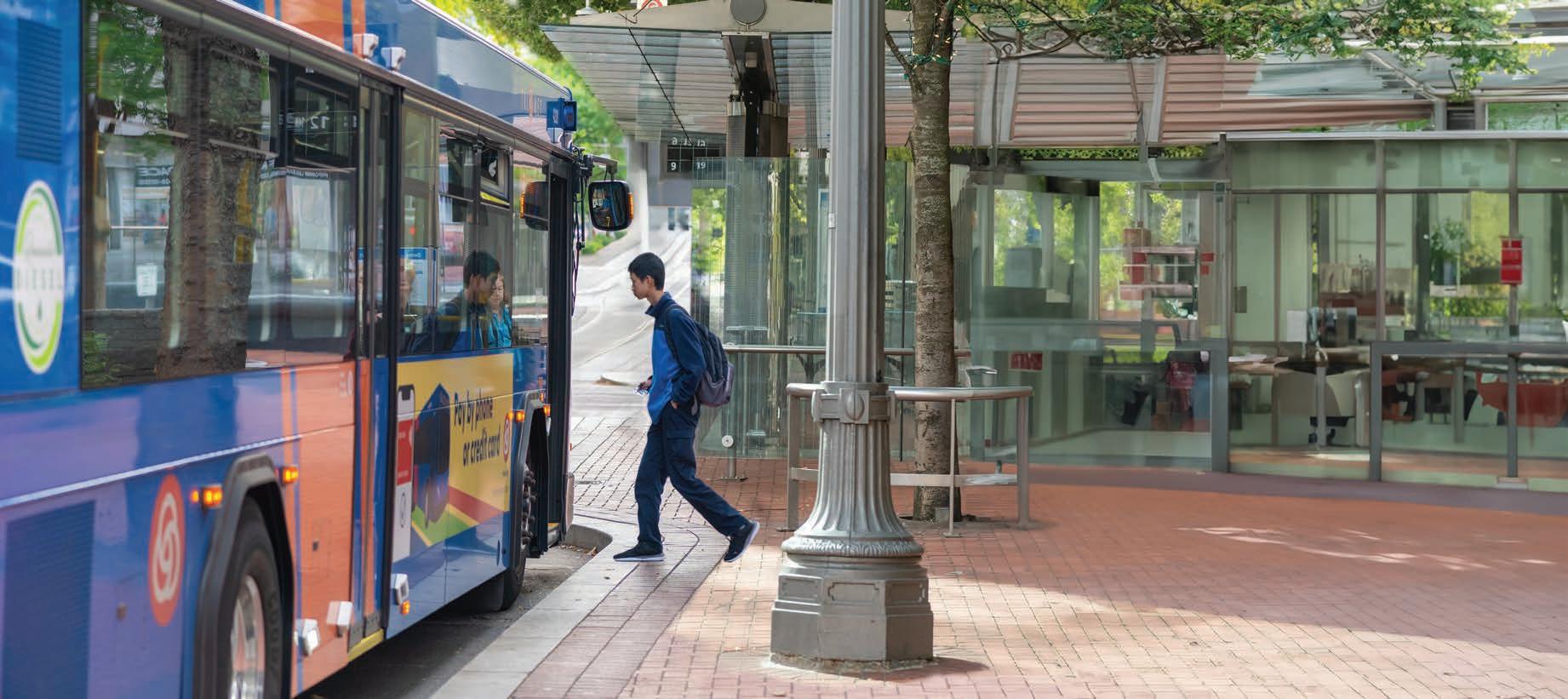
more connected Portland. Funding accessible public transportation is one of the most cost-effective ways of helping communities thrive. Over the past three years, TriMet’s reduced-fare program has driven connections to education, employment and essential services.
TriMet is more than just transportation—it’s an investment in a stronger, more connected Portland. Funding accessible public transportation is one of the most cost-effective ways of helping communities thrive. Over the past three years, TriMet’s reduced-fare program has driven connections to education, employment and essential services.
• Over 1.4 million free and reduced-fare passes
• Over 1.4 million free and reduced-fare passes
• $17 million given in free and reduced fares
• $17 million given in free and reduced fares
• Over $11 million in savings to people with low incomes
• Over $11 million in savings to people with low incomes
• More than 68,000 enrollees in our reduced-fare program
• More than 68,000 enrollees in our reduced-fare program
• 240,000 passes for students in the school-year grant program
• 240,000 passes for students in the school-year grant program
• 90,000 summer transportation passes given to students for access to activities and opportunities
• 90,000 summer transportation passes given to students for access to activities and opportunities
trimet.org
trimet.org
How will Portland’s new crop of leaders tackle a revamped system and problems that have been building for decades?
BY TAYLOR GRIGGS & COURTNEY VAUGHN
Portland City Council will never be the same. Literally. You probably already know that voters will soon elect an entirely new legislative body to lead the city. Come January, Portland’s 12 new city councilors will represent four geographic districts, with three people from each district on City Council. A new city administrator will, along with the mayor, work to implement policies that the council approves.
But what exactly is changing for our elected officials? And, perhaps more importantly, how will all of this impact you? While the practical effects of all these changes won’t be fully clear until the new council actually arrives in City Hall and gets to work, we have an idea of what to expect from our new form of government, and some predictions about how it will shake up Portland politics.

plement council-adopted policies alongside the administrator.
How things are supposed to work
The government transition will bring major changes for all Portland residents as well as elected officials. The charter reform measure and government transition were structured to give Portlanders better representation in local government. Those who helped craft the new system also hoped Portlanders who previously stayed away from city politics would be encouraged and inspired to participate in civic life. For the first time, city residents will have district representation in City Hall, giving underrepresented parts of Portland (like the easternmost part of the city) a chance for some real political leverage.
City councilors and the mayor can expect to have dramatically different roles compared to current Portland commissioners. The future mayor of Portland will no longer serve as a member of City Council, and won’t cast votes on policies (except in the case of a tie). The mayor will instead lead the executive branch and have administrative authority.
The mayor will still have important responsibilities, like developing the city budget for council review and approval. What we don’t know yet is how this massive change will affect the power dynamic between the new mayor and council. The mayor won’t have veto power, meaning any legislation approved by the council is final. In addition, any new legislation proposed by the mayor must get approval from the council.
The mayor will also appoint a city administrator, manage city bureaus, and im-
The city administrator is a key change in the new governing system. Portland has always had professional directors leading each bureau, but never a professional manager overseeing all city operations. Think of it like a company CEO: Portland’s new city administrator will oversee an assistant city administrator and six deputy city administrators, one for each new service area.
As for the councilors, their jobs will ostensibly be to connect with constituents, determine what should be fixed or improved around the city, and work with each other to craft (or approve) policy that can get it accomplished. Instead of being tasked with overseeing city bureaus (see “Commissioning Change,” pg. 33), the councilors will be expected to act in roles that are more akin to a state legislator.
“I think a lot of why we got to where we are today is because people were still mad in 2022.”
– John Horvick
The new district system should also open up more opportunities for residents to engage with their council representatives—but this may not come from permanent in-district offices. According to the Government Transition Advisory Committee, most cities with district representation don’t have such offices, due to cost and security concerns.
The advisory committee ultimately voted
to recommend the city provide “temporary, low-cost offices in each district” beginning January 1, 2025. The offices should have accommodations for up to eight staff per district and be located near public transit. The future City Council will make the final decision on whether to continue managing permanent offices in their districts.
Whether or not councilors have offices outside City Hall, they’ll still be expected to attend local community meetings and hold regular town halls in their districts, as well as establish district-specific communication to engage with their constituents.
Same problems, new leaders
Not only will the new council be bigger and operate differently, it’s likely to shift the city’s policies on homelessness. Out of 66 candidates the Mercury polled, 40 told us they disagree with the city’s new public camping ordinance. The ordinance was a hallmark piece of legislation approved by the current City Council earlier this year.
“I know it doesn’t allow for arresting people outright for ‘camping,’ but it is one of the outcomes and that’s just a step towards criminalizing being homeless,” says Thomas Shervey, a candidate running in District 1.
“Fines provide little incentive to people who can’t pay them. Plus, our jails and court systems are already under heavy strain.”
Ciatta Thompson is running in District 4, which covers Downtown Portland. Thompson says the city should focus more on connecting unhoused people with resources.
“The camping ordinance should be repealed,” Thompson said, citing friction between the city and the Multnomah County Sheriff’s Office over jailing unhoused people.
“There must be real carrots and sticks for any ban to work. It needs to be treated like
the urgent problem it is. I would push for more Temporary Alternative Shelter Sites within the city and Multnomah County, with the goal to congregate those in need in spaces where we can effectively deliver much needed resources,” Thompson added.
The responses from these candidates suggest the next council could be less draconian about homelessness policy than those currently in office.
It’s no surprise that most City Council candidates are decrying the city’s current leadership and running on a platform of change. What’s more difficult to gauge is whether voters will be able to differentiate the policy plans of each candidate in their district.
John Horvick is senior vice president at DHM Research, a public opinion research firm.
Horvick says by his observations, “every candidate is running to be a homeless solution finder.”
It makes sense, given the city’s unhoused population is equivalent to a small town. But there is little variance in priorities or platforms of each candidate.
“I feel like all the candidates are running for the median voter,” Horvick says. “I’m a little surprised that nobody is really taking a big swing on trying to do something that’s obviously different.”
Scan the websites and campaign platforms of all 98 City Council candidates and the primary concerns boil down to roughly half a dozen issues: homelessness and housing, public safety, addiction treatment, climate, transportation improvements, and economic revitalization.
Horvick said this election season, the discontent that influenced the 2022 election and brought us charter reform is likely still driving voters’ decisions.
“We made a change for charter reform at a time when Portlanders were really upset,” Horvick notes. “When Covid immediately hit, there was a bit of a rally effect. Not a good mood, but like ‘we’re in it all together, we’ll get through it.’ Then of course protests, homelessness, shootings and crime, and fentanyl spikes made people feel really bad about this place. I think a lot of why we got to where we are today is because people were still mad in 2022.”
With many of those issues still top of mind for voters, this election isn’t a question of what Portland’s biggest challenges are, it’s a question of whether a new governing system will put the city in a better position to tackle them. ■
How transportation is shaping this year’s
Despite claims about the political influence of Portland’s all-powerful “bike lobby,” transportation issues have not been a top city priority for some time. This is partially evident from the ignorant rhetoric out of the current Portland City Council, but it’s also clear just from taking a look around the city: Portland officials have long neglected transportation issues. Pedestrian deaths are the highest they’ve been in years. Bike ridership has dropped. Carbon emissions from personal vehicles are far higher than they need to be in order to combat the climate crisis before it’s too late. Meanwhile, Portland leaders are arguing over bike lanes
But there’s reason to believe with Portland’s government transition underway, a shift could be upon us. Many of the candidates running for City Council have made transportation a key part of their platform, discussing the industry’s contribution to climate change and the traffic safety crisis.
Regardless of who gets elected to City Council, there’s reason to hope the new government structure will better lend itself to progress on issues like transportation, which have previously been tied to individual bureaus. In the past, the siloed bureau system has made commissioners possessive of their own bureaus and unwilling to go to bat for a city office they weren’t in charge of. Even commissioners who have had progressive ideas for Portland’s transportation bureau have been unable to form alliances and get the votes they need to get anything done.
While it’s unclear who will get elected to City Council, and what the future councilors will do with their positions when they arrive, people who care about transportation in Portland have a broad slate of impressive candidates to choose from.
Some of the people who’ve been boosting transportation issues the most have backgrounds in the field. But many don’t, and have taken it upon themselves—or been encouraged to do so by local advocates—to get familiar with Portland’s transportation system during their candidacy.
Aaron Kuehn, chair of the advocacy group BikeLoud PDX, tells the Mercury the organization was inspired to get more involved in city politics last fall, after Portland Bureau of Transportation Commissioner Mingus Mapps entertained removing protective infrastructure on the Southwest Broadway bike lane at the behest of local hotel owners.
“At that moment, the relationship between our objectives and having responsible leadership in City Council was very acute,” Kuehn says. “We were basically like, ‘We need a new leader.’ With this election, and the [government transition], I think the city as a whole was also saying that.”
BikeLoud, as a 501(c)(3) nonprofit, cannot explicitly endorse candidates. But Kuehn says nonprofits can “educate the
BY TAYLOR GRIGGS
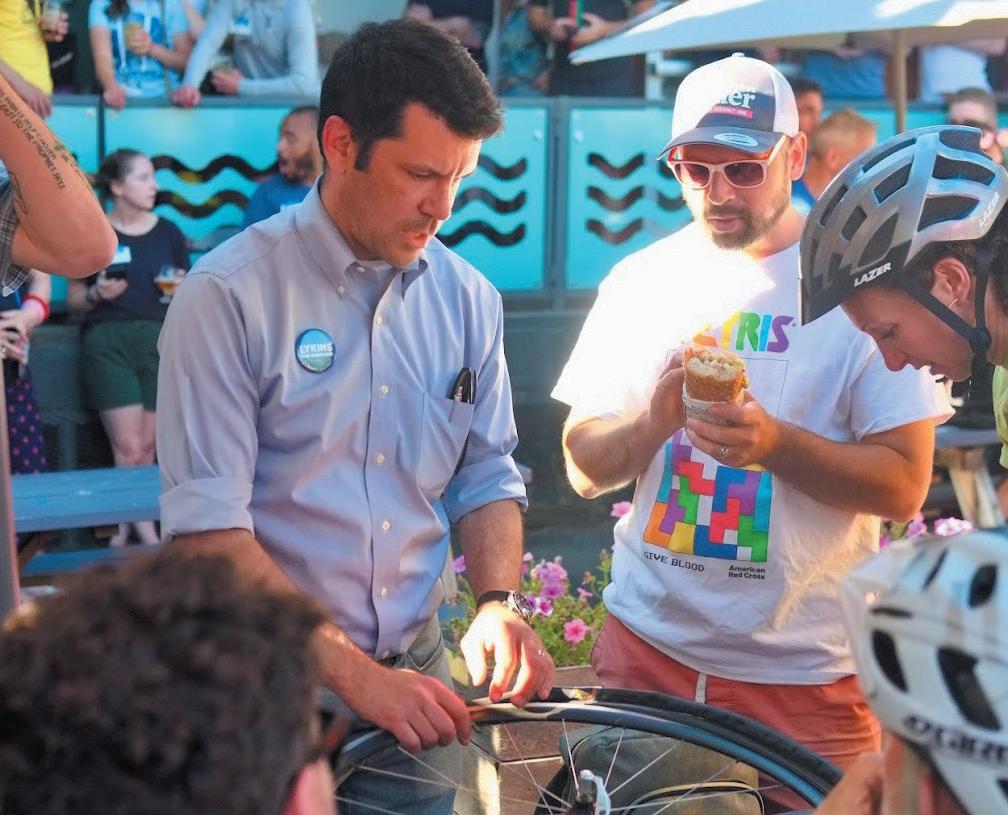
public and the candidates,” so the group reached out to all candidates in an attempt to “lift everybody up.”
Many of the candidates running for City Council have made transportation a key part of their platform, discussing the industry’s contribution to climate change and the traffic safety crisis.
“Rather than pick a winner, why don’t we make everyone a winner? Let’s educate everybody as much as we can,” Kuehn said.
“Usually, when people engage with transportation politically, they’re only doing it in a surface-level way. Anything we can do to broaden their knowledge is a good thing.”
Earlier this year, BikeLoud sent seven questions to every candidate who had, by that point, filed a notice of their intent to run. The organization asked candidates if they ride a bike regularly (and if so what kind, how often, and where), what their
visions for transportation in Portland are, and how they think the city should make it safer for people to walk and ride a bike amid high rates of traffic fatalities.
Kuehn says the hope was their answers would be informative not only to voters, but to the candidates themselves, potentially preparing them to be stronger advocates for transportation reform if they are elected to office.
“It’s an opportunity to do your homework,” he says.
Sarah Iannarone, director of transportation nonprofit The Street Trust, tells the Mercury the organization has a similar approach to their “Candidate Transportation School.” The program is a prerequisite for candidates seeking an endorsement from The Street Trust’s political arm, and Iannarone says it’s “very transportation 101.”
“Whether you’re progressive, a moderate, or even conservative, streets don’t have to be partisan,” she says. “I feel like it’s making a difference for these people, should they be elected, to have a baseline of shared understanding with our mission and values.”
Another venue for candidates and voters to commingle and chat about transportation issues has been at a weekly bike happy hour, created by BikePortland founder and editor Jonathan Maus. Maus issued an open invitation to City Council candidates
to speak at the happy hour, and says around 40 have taken him up on it.
Maus says he thinks politicians (and would-be politicians) understand that Portlanders who are into bicycling are “engaged, active volunteers and citizens.”
“Whatever people think about the reputation of the ‘bike activists’ in Portland, that’s a pretty good audience if you’re a politician,” he says.
The happy hour stump speeches have provided the candidates with some free publicity, but they’ve also allowed transportation-minded voters to make their case directly to people who may soon lead our city. Maus says he hopes the happy hour can serve as an alternative to the events frequently held by business groups to win over politicians.
“There are a lot of reasons why bicycling isn’t talked about in Portland’s halls of power as much as it used to be. Look at where politicians are spending a lot of their time,” he says. “Some of the candidates have been to bike happy hour several times, where you’re inundated with big ideas and cool information, and the activists will get in your ear. I think the BikeLoud and the Street Trust [candidate engagement], along with stuff like bike happy hour, forces candidates to confront these ideas and people. And then they fold it into their platforms, campaigns, and ways of thinking.”
What’s at Stake in the
Portlanders worked hard for a better form of government. Without the right leader, we’ll be stuck in a rut of dysfunction.
THE MERCURY ELECTION STRIKE FORCE
Portland is at a pivotal juncture. The city is poised to boost its tourism appeal by welcoming a new professional women’s basketball team and potentially a baseball stadium while simultaneously scrambling to build more housing and shelter space. All of this will happen with a brand new governing system and new elected leaders at the helm.
There’s a lot on the horizon, but as we start to recover from the economic hit and social unrest of the pandemic, some candidates would only serve to set our city back.
We’ve seen inklings of that in the leadership style of Rene Gonzalez, a current city commissioner who’s eyeing the mayor’s seat. During his nearly two-year tenure on council, Gonzalez has said a lot, but accomplished little.
In a recent mayoral debate, Gonzalez claimed he “banned the distribution of tents and tarps.” Despite his repeated pleas for a county-wide ban on tent and tarp distribution, that’s not entirely accurate. What he did was prohibit Portland Street Response (PSR) from distributing tents and tarps to unhoused people–who comprise the majority of the population PSR interacts with–amid a severe winter storm in 2023. The move, done under the guise of “fire danger” triggered immediate public backlash and tanked employee morale within the alternative response program. At least one employee quit. The program is still restricted from handing out those life-saving materials.
An audit released later that year depicted PSR as a potentially successful program that was flailing, mostly due to a lack of clear vision and leadership. At the time, the program was housed within the fire bureau, which Gonzalez oversaw until July. When a volunteer group gathered more than 10,000 signatures begging Gonzalez to save the alternative response program from further budget cuts, he refused to meet with them.
During his tenure, Gonzalez oversaw the Community Safety Division, which includes the region’s 911 system. The emergency response system has been plagued by long hold times for 911 callers and increasing response times from police and firefighters. The average response time for a high-priority call jumped from 12.4 minutes in August 2021 to 24.3 minutes in 2024, increasing steadily year-over-year. Rather than immediately focus on increasing the capacity of the local 911 system, Gonzalez blamed the public. He noted skyrocketing call volume over the past few years and repeatedly urged the public to avoid calling 911 unless it was truly an emergency. But the city commissioner ignored his own advice, calling 911 in January to report a “light assault” on him while rid-
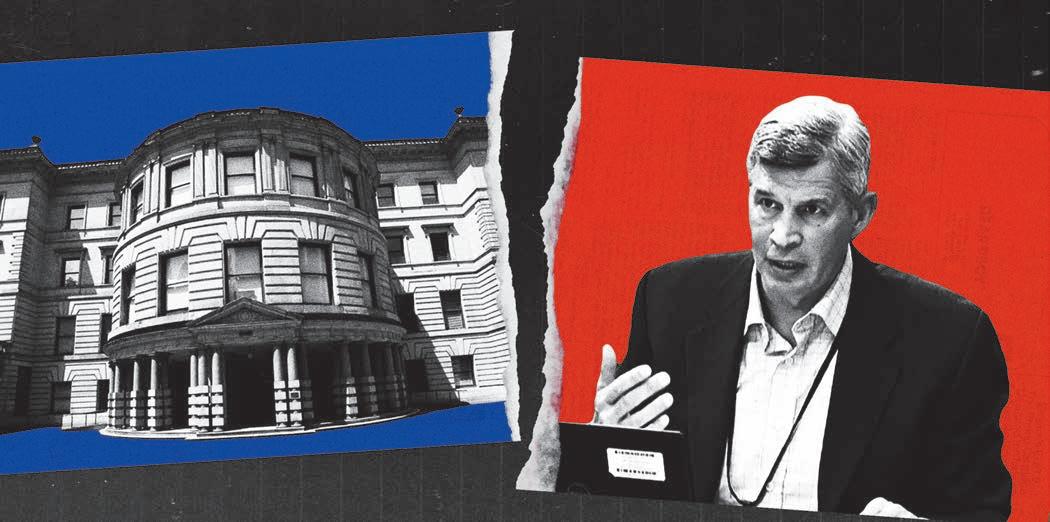
ing a TriMet MAX train. Surveillance video showed a woman on the train grazing his shoulder (if at all) and trying to engage in dialogue with the elected official.
While efforts were made to increase dispatch staffing, the knee-jerk reaction to discourage people from calling 911 sent a chilling message to the public about basic, critical services.
Public safety aside, Gonzalez has repeatedly shown a lack of compassion or real leadership when it comes to Portland’s homelessness crisis, instead showcasing willful opposition to any solutions that don’t involve sweeps, jail, or fines, regardless of shelter capacity.
Earlier this year, Gonzalez, a former attorney, was the lone voice calling for stiffer penalties for violators of a new homeless camping ordinance. His preferred policy ignored public input, and challenged advice from the city’s own attorney.
It seems he considers homelessness and addiction–critical issues impacting the city–moral failings that require “tough love” and an end to “enablement” despite acknowledging that Portlanders pay some of the highest housing costs in the nation. His policy proposals are devoid of any new plan to increase shelter capacity.
Recently, he floated the idea of slapping bright yellow labels on county-issued tents, in a move that would only serve to further demonize and stigmatize the region’s most vulnerable residents. Shall we start making kids who receive free school lunches use a different color cafeteria tray while we’re at it?
council’s adoption of the new camping ordinance demonstrated an inability to truly listen or consider diverse opinions. We’ve seen the same behavior routinely on display, particularly with his Trumplike penchant for labeling anyone who questions or criticizes police behavior an “extremist” or “abolitionist.”
He’s repeatedly called for the city to stop “platforming abolitionists” by allowing police critics to speak at public meetings. No one should have to explain to an elected official that you can’t stymie someone’s right to speech just because you don’t like what they’re saying. But Gonzalez has a habit of trying to stifle voices and facts that displease him.
In fact, he’ll even use your tax dollars to do it. The commissioner used thousands in taxpayer dollars to scrub his Wikipedia page of facts that he considered damaging to his reputation and campaign.
What’s most frightening about Gonzalez’s bid for mayor is his disdain for the very system of government that he’d be operating under.
Gonzalez has repeatedly shown a lack of compassion or real leadership when it comes to Portland’s homelessness crisis, instead showcasing willful opposition to any solutions that don’t involve sweeps, jail, or fines, regardless of shelter capacity.
He was one of two commissioners who tried (and failed) to block key aspects of the new city charter, including the new ranked choice voting system. Gonzalez also advocated for the new mayor to have veto powers to overturn legislation passed by council. None of it materialized, thankfully, but Gonzalez has signaled he’d use the mayor’s seat to the fullest extent of its powers. That kind of leadership style signals a person who’s more likely to work against council than with it.
the first on council to announce his mayoral campaign over a year ago. While there’s nothing overtly egregious about Mapps’ tenure in office, there’s nothing remarkable about it either.
To his credit, Mapps tried to drum up financial support for the city’s struggling transportation bureau with increased parking fees and enforcement. But he also misled the public on critical projects. Last year, Mapps reportedly approved a plan to strip away a newly installed bike lane on Broadway Boulevard and revert the lane back to an unsafe design for cyclists. The plans were covertly underway, without the public’s knowledge. Mapps then lied and said there were no “imminent” plans to revert the bike lane, but internal memos contradicted that.
Another low point in Mapps’ tenure came last spring when the commissioner asked Council to rescind funding from a local Black-led organization working to dismantle systemic racism. The reason? Mapps said they never spent the money like they promised. As it turned out, the group never received the funds from the city. It was an embarrassment that could have been avoided if Mapps or his bureau leaders had just had a single conversation with the group or bothered to check with city staff to ensure the money was granted.
Mapps should get credit for distancing himself from the debacle of the attempted charter reform sabotage launched by Gonzalez and Commissioner Dan Ryan, but he was the first on council to suggest he could come up with a better version of a reimagined city charter than what the ballot measure called for.
There’s a lot at stake. If the next mayor can’t unite the city in a shared vision and work collaboratively to move us forward, we’ll be stuck in the same rut of dysfunctional government Portlanders worked so hard to fix.
The commissioner’s actions during the
Gonzalez isn’t the only city commissioner vying to be mayor. Mingus Mapps was
The Mercury Election Strike Force is Wm. Steven Humphrey, Courtney Vaughn, Taylor Griggs, and Suzette Smith. ■
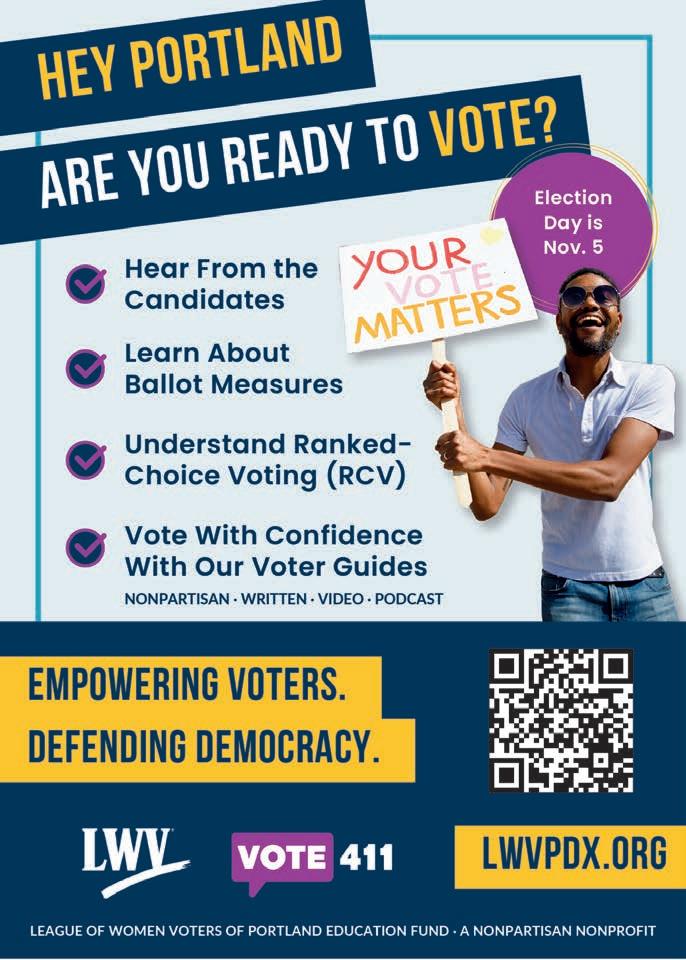


Fall 2020
Rene Gonzalez forms ED300— a parent activist group designed to pressure lawmakers, state agencies, and public officials to send children back to school… during the height of the deadliest part of the pandemic, and long before COVID vaccines were available. Later ED300 would endorse Oregon school board candidates who held anti-trans/ Islamist beliefs, were against marriage equality, and/or endorsed by anti-LGBTQ and pro-abortion groups

September 2022
During his campaign for city commissioner, Gonzalez is accused of violating the spirit of Portland’s Small Donors Election program (and the law) by accepting a $6,900-per-month downtown campaign office space from local billionaire Jordan Schnitzer for the low, low price of only $250 per month. After an administrative judge ruled in favor of Gonzalez, the Elections Office chose to drop their fines as well.
October 2022
Gonzalez begins his Twitter campaign to demonize/criminalize the homeless (AKA “those who prey on our compassion”).
November 2022
Thanks to a cash infusion of at least $360,000 from the wealthy “Portland Accountability” PAC, and stoking voters’ largely misplaced fears of crime and homeless people, Gonzalez defeats the first Black woman on City Council (also widely seen as their most effective member), Jo Ann Hardesty, by a nine-point margin in the race for her council seat.
November 2022
Gonzalez shows love on Twitter for rightwing MAGA enthusiast and Patriot Prayer member Quincy Franklin.
January 2023
The city auditor’s office releases a scathing report on how the fire bureau (controlled by Gonzalez) mismanaged the popular Portland Street Response (PSR) program, noting the bureau’s “inconsistent commitment to
the programs and their potential.” Previously, during his 2022 campaign for council, Gonzalez promised to support “unarmed public safety alternatives” like PSR.
February 2023
Gonzalez orders PSR to stop handing out life-saving tents in the dead of winter.
April 2023
At least one PSR staffer resigns after Gonzalez orders the team to assist in homeless sweeps.
April 2023
Gonzalez and Commissioner Mingus Mapps attempt to sabotage Portland’s switch to ranked choice voting, claiming that Portland voters aren’t smart enough to understand it.
June 2023
Gonzalez dismisses a Portland State University evaluation of PSR, which recommended increasing staffing levels, providing more support, and soothing ongoing tensions between staff and rank-and-file firefighters. Besides ignoring the report, Gonzalez also refuses to bring the evaluation before City Council for consideration.
June 2023
Gonzalez accuses members of PSR of being “police abolitionists.”
July 2023
Commissioner Dan Ryan joins Gonzalez in another attempt to torpedo Charter Reform by attempting to reduce the number of new city council members, nix ranked choice voting, and give the mayor more
power. It did not end well for them. In fact, the co-founder of Ranked Choice Voting Oregon, noted that their last-minute subterfuge made council look like occupants of “a clown car.”
July 2023
Gonzalez stops the proposed expansion of PSR to operate 24-hours per day in order to “work out the kinks,” which—on top of incoming fire chief Ryan Gillespie putting a hold on ordering clothes and food boxes for houseless people, while also enacting a PSR hiring freeze—possibly led to the departure of PSR manager Robyn Burek.
January 2024
Gonzalez calls 911 claiming a woman of color “accosted” him on a MAX train, and subjected him to “deliberate, unwanted physical contact.” Surveillance video clearly showed he was barely brushed up against, if touched at all.
February 2024
Gonzalez attempts to take $12 million from the Portland Clean Energy Fund—which taxpayers voted would be used only for climate-related initiatives—to shore up the financially strapped public service bureaus under his watch.
March 2024
Using $6,400 in taxpayer dollars, Gonzalez instructs his staff to work with a consultant to edit his Wikipedia page—primarily to remove unsavory entries. The move led to public complaints and a campaign finance investigation that auditors intially closed, but then reopened in early October after obtaining new evidence. The matter was also
forwarded to the Secretary of State for further investigation.
June 2024
Gonzalez continues his crusade to keep the county from distributing tents to the homeless, saying the county’s efforts to provide life-saving shelter was “enabling self-destructive behavior.”
July 2024
Gonzalez again platforms a far-right figure, re-posting provocateur Andy Ngo’s criticism of Portland and its antifascist protesters.
July 2024
During a City Council meeting regarding a lawsuit in which a protester was injured by cops, Gonzalez proposed limiting public criticism of the police in City Council meetings which are public. His suggestion was met by fellow council members with silence.
When a federal judge ruled that the current City Council would not be allowed to appoint members to the nominating committee for the new civilian-run police oversight board, Gonzalez accused the judge of “judicial overreach” while wrongly accusing former Commissioner (and rival) Jo Ann Hardesty of being a “police abolitionist.” During his 2022 campaign for commissioner, Gonzalez promised to “openly embrace strong citizen oversight of Portland police.”
Gonzalez’s obsession with the candidate he defeated two years prior continues, tweeting (once again without evidence) that former Commissioner Jo Ann Hardesty “speaks for anarchists, DSA, & advocacy class.”
Gonzalez continues to exert pressure on the county to limit the distribution of tents and other life-saving materials to the houseless, suggesting that every tent should come complete with a large yellow label with the words “County Funded Tent,” and workers should put the houseless person’s name and location on record.
To be continued. ■

H H H H H H
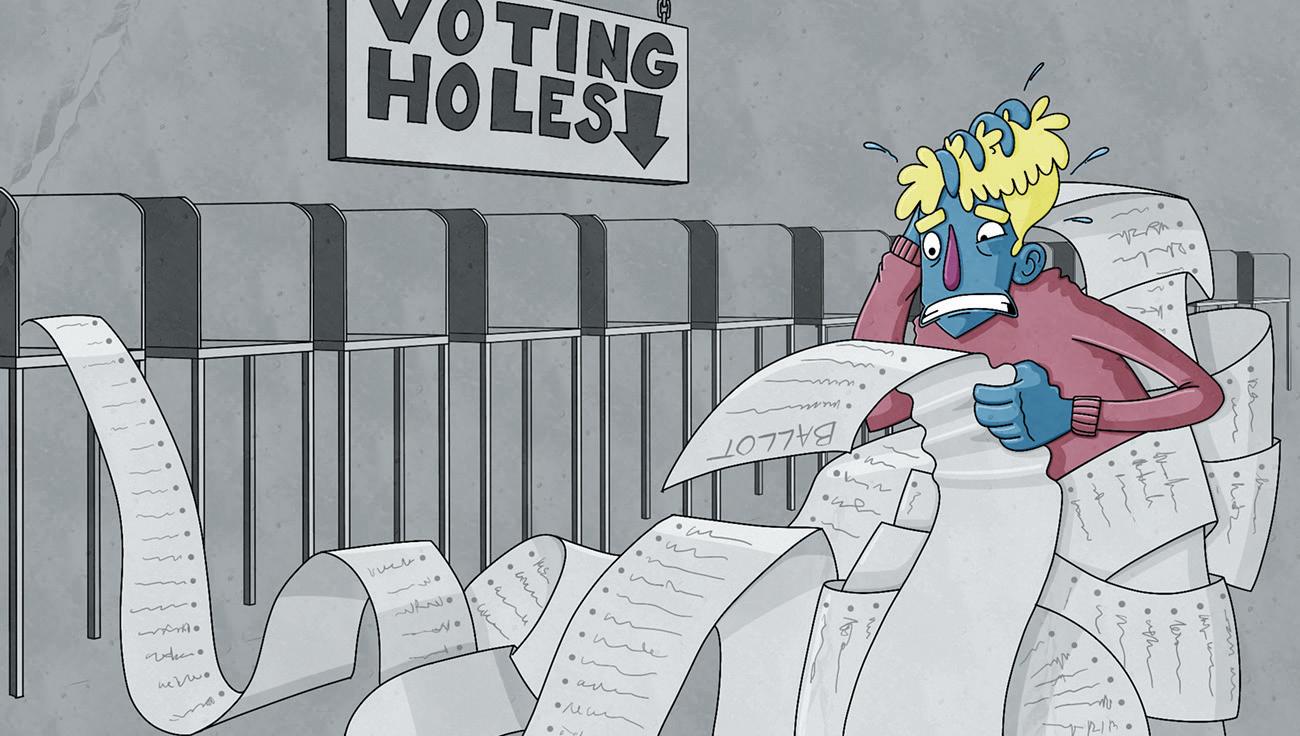
The next mayor of Portland will be crucial in helping steer the city in a new, promising direction. Under the city’s charter changes, the mayor is no longer part of City Council and will instead serve in a more administrative role, helping oversee and guide daily city operations while making sure legislation passed by council gets implemented.
This means the next mayor needs to have a combination of the right vision, temperament, and experience. Portland needs a leader who can unite a city fractured by overlapping crises. But we also need someone who recognizes the rich culture, communal nature, and independent spirit that shaped our city and continues to define it. Currently, very few people on the ballot have the qualifications or political will to make that happen, which is why the Mercury is only endorsing three candidates in this race. (For more, see “What’s at Stake In the Mayor’s Race,” page 9.)
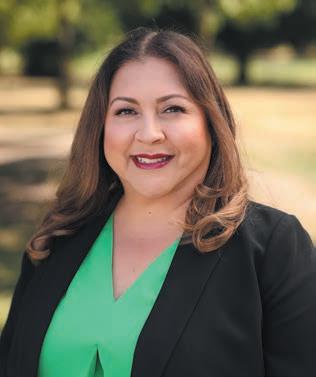
Throughout the majority of Carmen Rubio’s time as city commissioner and, more recently, mayoral candidate, she’s (mostly) managed to avoid rocking the boat. But the past month or so has been
tough for Rubio. After an initial article in the Oregonian exposed her years of driving and parking misdeeds, which involved racking up six driver’s license suspensions for failing to pay tickets, Rubio hit a parked car—and walked away from the scene—right when she should’ve been on her best behavior.
The public backlash to news of Rubio’s gaffes was swift and harsh. Well, we’d characterize some of it as harsh but fair, considering just how outrageous the commissioner’s driver record was. But other reactions were over-the-top, especially from Portlanders who’ve never been sticklers about parking laws until now. Ultimately, upon a holistic review of the candidates, we decided that despite her personal flaws, we’re sticking with Rubio as our number one pick to be Portland’s next mayor. However, our support comes with the hope that she’ll change her policy approach on a few issues that have been weaknesses during her time in City Council so far. (Ahem, Zenith Energy.)
Among her colleagues on the current Port-
land City Council, Rubio has easily been the most productive. She and her team were tasked with some of the city’s most wonky bureaus, and have managed to make big strides on issues that have seemed insurmountable. While many city leaders talked abstractly about solutions to the city’s housing crisis, Rubio took action, developing Portland’s first-ever Housing Production Strategy after a state mandate. The strategy details concrete steps for building more housing in Portland, including some major changes to zoning code requirements, which Rubio also helped deliver earlier this year. Throughout this process, we were impressed with Rubio’s willingness to listen to subject experts and her ability to stay balanced in the face of pressure from wealthy developers. Rubio also headed an overhaul of the city’s clean energy fund, one of the most promising local environmental policies in the country that initially faltered due to organizational struggles. Rubio’s refocused the program with a series of complex code

changes, and it has transformed into a welloiled machine, with a clear strategy for climate action.
These are just a couple of examples of Rubio’s policy accomplishments, but they’re big ones, indicating the commissioner’s collaborative skills and drive to use her position to make change—not just talk about it.
As we alluded to earlier, one of Rubio’s biggest missteps during her time in office has been her handling of the permit for oil transporting company Zenith Energy, which has a highly-contested facility in Northwest Portland’s Critical Energy Infrastructure hub. Before taking over the Bureau of Development Services (BDS) in early 2023, Rubio was already getting friendly with Zenith staff, accompanying her colleague Dan Ryan on a site tour that flouted city lobbying rules. Once she took over BDS, advocates felt Rubio—who has long maintained her commitment to environmentalism—could’ve done more to challenge Zenith, but she maintained the city’s decision to grant the company a Land Use Compatibility Statement.
Zenith has said the company will transition to exclusively using renewable fuels at its Portland site within a matter of years, and Rubio’s office has pointed to this as a reason they should be allowed to operate in the city. But Zenith critics doubt their commitment to making the switch, and say even renewable fuels could cause devastating environmental damage in the case of an earthquake. Many candidates running for City Council have expressed their disapproval of the way the city has handled Zenith, and we hope Rubio will be willing to accept a different strategy if she’s elected mayor.
Rubio’s accomplishments, relationships, and temperament show she will be an adept guide for Portland’s new City Council during the government transition, which could come with some bumps. She has some flaws, but so does every politician (see “Rene’s Receipts” page 11, or every Portland mayor elected from 1851 to the present). We should not hand this important and delicate job over to a blustering, argumentative narcissist, so we’re ridin’ with Rubio. Well…maybe not in the passenger seat of her car, but in a broader, more important sense. You know what we mean.
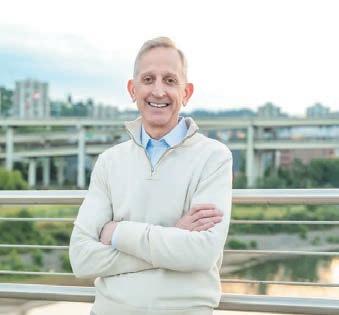
ly the CEO of the nonprofit Shelter Portland, has made housing and homelessness central to his mayoral campaign. Notably, he has ambitious plans for ending unsheltered homelessness within his first year in office. He promises to dramatically increase walk-in overnight shelters and leans on this plan heavily as the solution to ending the debacle over tents and tarps, discontinuing homeless camp sweeps, and never having to fine or jail someone for living outside. The plan sounds great on paper, and Wilson’s commitment to seeing it through–complete with data and expertise–is commendable. But the reality is we may never convince every unhoused Portlander to utilize a congregate shelter, and it’s no small task to transport thousands of people to a facility nightly, even with public transit.
We also haven’t heard any talk about a housing-first model, which is often more cost effective and leads to better outcomes. We’d also like to hear Wilson firmly acknowledge the rapid rise in housing costs that contributed to Portland’s sharp increase in unhoused residents over the past eight years. Establishing shelters is important, but preventing homelessness needs equal attention.
And while he touts his newcomer-to-politics status as a plus, we were left to wonder: Are we about to get saddled with a potentially very green City Council and a mayor who doesn’t know how to navigate City Hall?
With all that said, we still think Wilson is capable, competent, and brings a collaborative leadership style that will be essential for Portland’s next mayor. His dedication to climate goals and understanding of correlating funding streams gives us hope.
Wilson’s path from relative obscurity as a business owner and nonprofit leader with no prior government experience to a leading candidate for mayor shows his tenacity and hustle. It also proves his ideas resonate with the public. If elected, we’d love for him to quash our skepticism by eliminating unsheltered homelessness and removing any doubt about what’s possible with the right vision and leadership.

Liv Østhus, AKA Viva Las Vegas, is an obvious political outlier. Her background as a stripper, bartender, writer, and artist is far from the laundry list of City Hall staffers-turned candidates, or nonprofit executives eager to make a political splash.
That’s part of what makes Østhus both intriguing and surprising. She entered the mayor’s race with a vision of bolstering Portland’s art scene. She’s talked about the
power of arts and music as an oft-unsung economic engine, driver of tourism, and city revitalization—and we think she’s right.
She advocates for the city to create “cheap and abundant art spaces, while retooling existing downtown infrastructure to boost the city’s low-income housing supply.”
Østhus acknowledges her lack of government experience, but says under Portland’s new government structure, that’s not as important as it once was.
She envisions the new mayor’s role as “more of a figurehead and a cheerleader” who can listen to and connect with Portlanders while bringing “enlightened and charismatic leadership.”
In her personal life, she’s raising a young daughter and previously battled breast cancer. Her cancer diagnosis ultimately led to a double mastectomy.
Unlike most of the other political newcomers in the mayor’s race, Østhus ran a serious campaign, raking in enough individual donations to qualify for more than $85,000 in public financing through the city’s Small Donor Elections program. She’s also in tune with what’s happening at the local government level, from homelessness policy to tax increment financing (TIF) districts that will bring groundbreaking redevelopment projects to many neighborhoods.
She’s firm in her support of downtown revitalization efforts. As a longtime dancer
H H H
at Mary’s Club, she’s seen the transformation of downtown and the hit it took during the pandemic. But she doesn’t think the city needs to displace or put more burden on its unhoused population to achieve that.
Make no mistake: Electing Østhus would be a bit of a gamble. Many doubt her political acumen and question her lack of experience. It’s a fair criticism. And while we applaud her focus on revitalizing the city’s arts offerings, we’d like to see her emphasize solutions to the housing and homelessness crises a little more heavily in her campaign.
But we also think many voters have been too quick to count her out. What if she’s the next Bud Clark? Clark, a local tavern owner, was elected mayor in the mid-‘80s with no prior political experience, yet managed to accomplish a lot, while producing the somewhat-iconic (at least around PDX) Expose Yourself to Art poster.
Østhus knows she’d be at a bit of a disadvantage, but she also knows when to seek guidance from policy experts and talented city staff.
She’s funny, candid, and unabashedly authentic. We can’t think of another candidate who exemplifies Portland more than her. Even if she doesn’t win this election, we’d like to see her stay involved in local politics, either by lending her voice to a committee or commission, or mounting another run for public office. ■
District 1 is located in the easternmost part of Portland, which has been historically underrepresented in City Council, and contains neighborhoods such as Parkrose, Mill Park, and Lents. Top concerns for District 1 include traffic violence, which is disproportionately high in East Portland, access to green space and tree canopy cover, and gun violence. Sixteen people are running for City Council in District 1, and those who are elected will serve a four-year term.

Look at who was behind the scenes of some of the most forward-thinking initiatives in Portland in recent years, and you’ll find Candace Avalos. To Avalos’ detractors, her involvement is a sign of cynical ambition—especially since she served on the city’s Charter Commission, which set the
H H H
specifics of the charter reform plan that voters approved in 2022. But to us, as to those who have actually been paying attention to Avalos’ career, it’s clear she’s an effective leader and strategist with the skills to champion a winning movement. If you want to get good things done in Portland, you want Avalos on your team.
In addition to her participation on the Charter Review Commission and her day job as the executive director for environmental justice nonprofit Verde, Avalos served on Portland’s Citizen Review Committee for
It’s clear she’s an effective leader and strategist with the skills to champion a winning movement. If you want to get good things done in Portland, you want Avalos on your team.
about six years, working to improve police accountability during a very tumultuous time in the relationship between Portlanders and the city’s police bureau. She is also on the boards of the Coalition of Communities of Color and Street Roots. But it’s not just her impressive resume that makes





Avalos uniquely qualified to serve on Portland’s brand-new City Council. Her resolve and willingness to speak candidly means we trust Avalos to take on worthy fights when necessary—and do it armed with unimpeachable intelligence and a wealth of knowledge to back her up. (A great example of this: Avalos’ staunch and winning defense of the charter reform measure when two City Council members wanted to make significant, potentially ruinous changes to it at the last minute.)
When Avalos ran against Carmen Rubio for a City Council seat in 2020, the Mercury endorsed the latter candidate, but with the caveat that we wanted to see Avalos continue in local politics, for the benefit of the city. Well, she certainly did, and we’re happy to say the time for her leadership is now.
the upcoming election will result in more representation for East Portland than ever. Tern is an ideal candidate for the first cohort of three East Portland councilors. Not only has he lived in the area for most of his adult life, but Tern is also deeply connected to Portland’s Asian and Pacific Islander communities, many of whom reside or own businesses in the easternmost part of the city. He is also a member of the Reynolds School Board. His involvement with the community’s cultural organizations and the Reynolds School District make him uniquely qualified to represent the diverse population in District 1.
Tern’s community involvement credentials are too vast to fully include in this endorsement, but the general point is clear: He knows, and deeply cares about, the people of East Portland. If elected, we believe he will lead with much-needed compassion and empathy, with practical knowledge and life experience backing him up.

Cayle Tern may not have the citywide name recognition of some of his fellow candidates, and if elected, he is unlikely to be the most boisterous person in City Council chambers. But we hope voters will take a closer look at Tern. With deep ties to East Portland and a diverse and impressive resume, Tern is a champion for the city’s most vulnerable communities, and would make an effective and thoughtful member of Portland’s new City Council.
When he was a child, Tern and his family came to the US as refugees from Laos during the Laotian Civil War. His family didn’t have many financial resources, relying on public benefits and the support of neighbors to get by. As an adult, Tern dedicated himself to helping others in precarious positions. He spent 15 years as a family coach with the Oregon Department of Human Services, and also worked for Council for the Homeless, a nonprofit dedicated to ending homelessness in Clark County, partially through resource services.
In an interview with the Mercury, Tern said his strengths come from his background working with some of Oregon’s most vulnerable people and families. He said he has an understanding of the current landscape of services and support networks, and knows where the city should focus its efforts.
generous spirit of collaboration.
In an introductory email to the Mercury shortly after he launched his campaign, Ender shared an astute and thoughtful vision for leadership in Portland. He addressed the number of challenges facing the city, including gun violence, climate
Ender delivers effective messages, drawing on his deep community involvement in East Portland and experience working in city government.

Some of the most promising Portland City Council candidates have ample experience managing government budgets and developing high-level policy. Others are more impressive for their dedication to their communities, demonstrating an ability to work on the ground, connecting with Portlanders of all kinds. Timur Ender belongs to both categories.
Tern is a champion for the city’s most vulnerable communities, and would make an effective and thoughtful member of Portland’s new City Council.
No matter who gets elected in November,
Ender’s educational background is in criminology and law. But he has spent most of his career so far working in transportation and land use planning. After receiving a JD in transportation law from Lewis & Clark, Ender began a six-year stint at the Portland Bureau of Transportation (PBOT), where he served as a transportation policy advisor and then a capital project manager. At PBOT, Ender worked on infrastructure projects for East Portland, which has historically been underserved with regard to transportation needs, and contains a disproportionate amount of the city’s most dangerous streets and intersections. Determining how East Portlanders could best be served by city resources is a job that requires deep community knowledge and a
change, traffic fatalities, health inequality, and a lack of economic development. These problems are all more dire for people who live in East Portland.
While many candidates and elected officials ruminate on the downstream effects of those issues, Ender wants to focus more on their root causes. He cited excessive asphalt and concrete in the built environment, jobs located far from housing, and lack of access to green space as a few examples of problems that, if addressed, will improve many other outcomes for Portlanders.
Ender’s professional background in transportation and land use planning has clearly shaped how he views Portland, both in its current state and in a more ideal future. But
H H H
while he is knowledgeable about infrastructure issues, he’s not single-minded. Ender delivers effective messages, drawing on his deep community involvement in East Portland and experience working in city government. He will be a strong advocate for District 1 and a valuable member of the new City Council.
Other Impressive Candidates of Note:
Jamie Dunphy — You might know Dunphy best from his work advocating for independent musicians (and against a Live Nation venue) in Portland. While his dedication to Portland’s artists is admirable and important, he also has experience crafting city policy, having spent five years as senior policy director for the late Commissioner Nick Fish, among other roles. Dunphy is amiable but pragmatic, with a vast range of areas of expertise to guide him as a leader.
Steph Routh — Routh is a planning wonk (we mean this as a compliment!) with years of experience in organizational leadership, communications, and community organizing. She is also very passionate, especially about issues facing people in East Portland, and is dedicated to connection and building consensus. Routh would be a dedicated advocate for the people of District 1.
David Linn — Linn is a lifelong Portlander who has been deeply involved in East Portland communities, serving on neighborhood associations and as an elected school board member for the Centennial School District. He told the Mercury that community organizing is his life’s passion, and we believe it. He’s smart and can appeal to a broad coalition of people while maintaining progressive values. ■
OUR ENDORSEMENTS, RANKED
District 2 is located in the north/ northeast part of Portland, and consists of neighborhoods including St. Johns, Eliot, Alameda, and Irvington. Top concerns in the district include gentrification, public safety, and environmental issues. There are 22 District 2 candidates, and those who end up being elected will serve a four-year term.
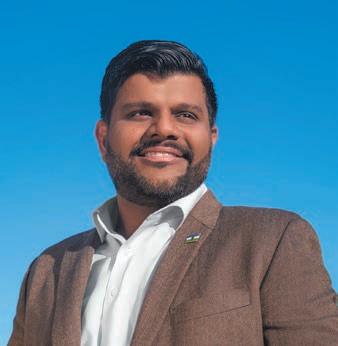
H H H
up, and we admit we were excited when he announced his candidacy. We weren’t the only ones: Even though Kanal hasn’t been in the race as long as many others, he’s managed to rack up a lengthy list of endorsements, finding support among progressive Portlanders impressed by his positions and experience.
Kanal’s work in various roles at the city is proof of his leadership capacity, even in contentious political areas. He currently serves as the inclusive policy manager for the new Public Safety service area, where he’s been tasked with supporting the work of the city’s several police accountability and advisory committees and planning for the future of Portland Street Response, among other responsibilities. He has also worked in community engagement for the city’s Community Safety Division and as a project manager for the Police Accountability Commission. In the latter role, Kanal helped a team of volunteers craft the details of the Community Board for Police Accountability, which voters approved in a 2020 ballot measure.
In an interview with the Mercury, Kanal pointed to the time he spent working with the 20 volunteer members of the Police Ac-
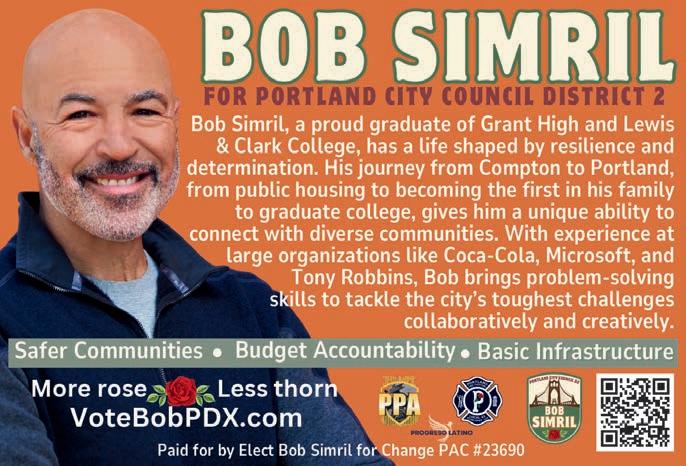
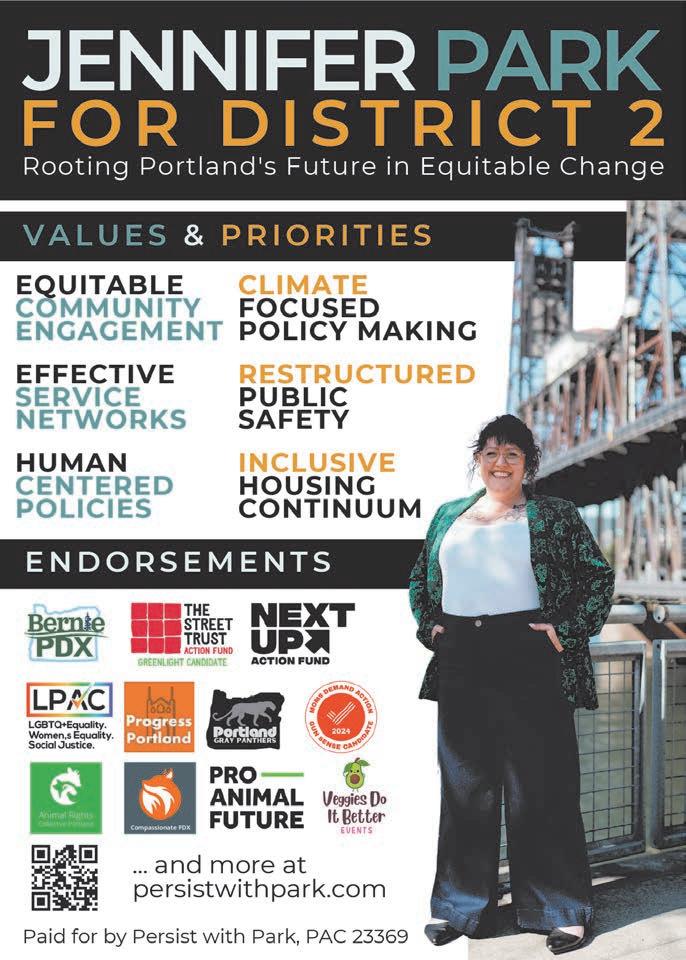

countability Commission as an example of his ability to build consensus. He said the volunteers had “different ideologies, backgrounds, and experiences,” and yet they unanimously approved their recommendations for the oversight board.
Born and raised in North Portland, Kanal is deeply familiar with the area that now makes up District 2. When he talks about wanting to serve the people of Portland as a city councilor, it’s clear he means it, and has clear policy objectives in mind. Many of Portland’s elected officials tend to fixate on the problems the city is currently facing, forgetting to also articulate an inspiring vision for what could be. Kanal is the kind of person who can recognize the city’s current challenges, but can also look beyond where we’re at to focus on what’s possible. We think his energy will be a valuable asset in City Hall.

Michelle DePass’ history of involvement in North and Northeast Portland (which now makes up the area encompassing District 2) goes back to her childhood. When she was 12 years old, DePass worked at the Black Panthers’ free health clinic on North Williams Avenue, in the heart of the historic Albina neighborhood—formerly home to the majority of Portland’s Black residents. Though her local engagement has since extended far beyond just one neighborhood, Depass’ strong District 2 roots automatically make her an intriguing contender in our book—and a look into the full breadth of her career just confirms her qualifications.
Aside from leading the Portland School Board and pushing for better outcomes for Portland’s Black and brown students, DePass also works for the city of Portland’s Bureau of Planning and Sustainability. That combination of experience makes her keenly aware of how the city works, both internally and externally, and what major projects lie ahead.
sential services for all Portland residents.”
Since announcing her candidacy this spring, DePass has nabbed the endorsement of former Gov. Kate Brown, former Oregon Sen. Stephen Kafoury, Rep. Andrea Valderama, and City Commissioner Carmen Rubio, among others. She’s also been endorsed by progressive groups like Bernie PDX, Portland Neighbors Welcome, and Friends of Portland Street Response.
DePass knows what it takes to bring everyone to the table when making difficult decisions. During an interview with the Mercury, DePass underscored the importance of “counting to nine,” referencing her goal to seek support for future policies from a large swath of council, not just the simple majority required to pass legislation.
DePass is more likely to make values-based decisions than support what’s politically expedient. If elected, she stands to be a unifying force on the Council, bringing a wealth of diverse career experiences with her.
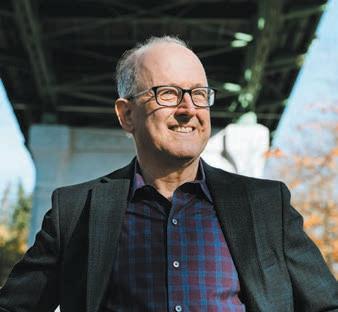
Compared to Kanal and DePass, who were both born and raised in District 2, Jonathan Tasini is a new arrival to Portland and its political scene. But his chops as a mover-and-shaker in the national left-wing political and labor spaces shouldn’t be dismissed. Portland City Hall has seen a rightward shift in recent years, and the upcoming election offers an opportunity to turn the tides. Amid that atmosphere, Tasini offers a clear-minded, sharp vision for a Portland that truly embraces working people.
Depass’ strong District 2 roots automatically make her an intriguing contender in our book—and a look into the full breadth of her career just confirms her qualifications.
DePass says she entered the City Council race to “address our city’s housing and drug crises with compassion and innovation, focus on development that doesn’t result in displacement” and to “nurture and grow our small businesses, and ensure access to es-
We were particularly impressed with one of Tasini’s answers to a questionnaire from the organization Onward Oregon, in which he made the matter-of-fact observation that “virtually every challenge we face comes down to people not earning enough money. Our city is no different than cities nationwide where the rich and the powerful are protected, the working person bears a disproportionate burden of the costs to create a functioning society, and our valuable tax dollars are squandered.”
Tasini is an excellent communicator with experience that makes him a formidable force against Portland’s powerful business lobbyists during a critical political moment. He knows that Portland’s workers will be instrumental in making progress on the obstacles the city faces, and his dedication to labor will serve Portland well.
Jennifer Park — Park is compassionate and intelligent, with a knack for public policy and a dedication to public service. She’s spent much of her career working in nonprofits to advance social justice principles, and has thought about how to turn
her values and priorities into action. Portland’s government would benefit from her justice-minded vision, and we hope to see more of Park in the future.
Nat West — Before running for City Council, “Reverend” Nat West was wellknown for his hard cider company, which he started out of his Woodlawn basement and grew into a nationally-recognized (and beloved) brand. As West has seamlessly transitioned from cider-maker into political candidate, he’s displayed his skills as a coalition builder and shown dedication to helping the city’s small businesses. West is versatile and clearly passionate about the people of Portland, and we’re excited to see him in the city’s political sphere.
Marnie Glickman — Glickman balances progressive idealism with a long career of working on successful political campaigns across the US. A longtime environmentalist, Glickman was one of the co-authors of the 2010 Green New Deal, and we appreciate her dedication to climate action in her campaign for Portland City Council. If Glickman is elected as councilor, we’re sure City Hall would benefit from her energy and well-informed passion. ■
District 3 encompasses most of Southeast Portland west of I-205 and east of the river. It includes the Buckman, Woodstock, Laurelhurst, Montavilla, and Mt. Scott-Arleta neighborhoods, among others. It’s also home to some of the city’s most walkable and recognizable shopping and dining hubs. Small businesses are central to the district’s vibrancy. Top concerns in District 3 range from homelessness in the central city, to housing affordability, treatment and detox centers, and the redevelopment of 82nd Avenue. Candidates in District 3 will serve two-year terms.
leled, as evidenced by her popular TikTok videos and social media following. She was the first candidate to garner enough donations to unlock $80,000 in matching funds from the city’s Small Donor Election Program. If elected, Morillo would provide representation for voters under 30 that we rarely see in local government.
Among the several City Council candidates with an impressive history of union involvement and labor activism, Tasini stands out. He was president of the National Writers Union for 13 years, helping set a national legal precedent for freelance writer labor rights. More recently, Tasini began the organization Just Transition for All, a project intended to help guide the global decarbonization effort to be transformative for the economy and ensure workers and unions are part of the clean energy movement. The initiative captures Tasini’s priorities, which focus on workers’ rights but also encompass other critical issues, like climate change, transportation reform, and housing.

Morillo is whip smart and innovative. She currently works as a policy advocate at Partners For a Hunger-Free Oregon. Prior to that, she worked in constituent services for former Commissioner Jo Ann Hardesty. Her ability to connect with Portlanders and engage them on critical issues is unparal-
Morillo’s innate understanding of how Portland has been governed and the impacts of its policies is hard to match.
But it’s not just her knack for engaging Gen Z and millennial voters, or gathering likes on social media that sets her apart. Morillo’s innate understanding of how Portland has been governed and the impacts of its policies is hard to match. When asked about solutions to the affordable housing crisis, Morillo is quick to point out a few sources of skyrocketing rents (like arbitrary rental income databases) that could and should be nixed. Morillo, who was briefly unhoused while in college, also understands the nuanced and compassionate approach required to help get people off the streets and into shelter and housing. She’s also familiar with the barriers and harmful city practices that prevent people from accessing basic services and housing. Morillo is nothing if not grounded and resolute.



“
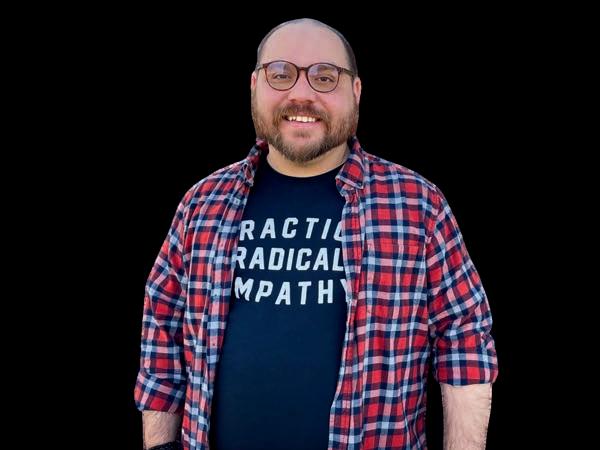
“We




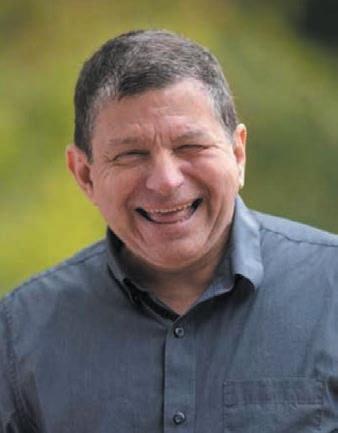
Steve Novick is a familiar face in Portland politics. He served on Portland City Council from 2013-2017. During that time, Novick passed a trailblazing CEO tax that penalizes companies who pay their CEOs 100 times the salary of the company’s average worker. It inspired other cities to follow suit.
Novick also oversaw the Portland Bureau of Transportation and worked tirelessly to find new funding sources for the bureau. He created the 10-cent-per-gallon gas tax. It was a sorely needed new revenue stream for the struggling bureau. Voters renewed the tax in May.
Novick acknowledges the tax is a drop in the bucket and will merely “slow the bleeding” of PBOT’s budget crisis. He now says we should explore how to get more localized revenue from state registration fees, and charge based on the size and type of vehicle. In other words, he’s coming to the table with practical solutions.
He’s also the force that got a gate in -
Novick is one of the rare candidates who can bridge the gap between Portland’s progressives and moderates.
stalled on the Vista Bridge to prevent frequently occurring suicides.
After he was ousted by Chloe Eudaly in 2016, Novick, an environmental attorney who previously worked for the US Department of Justice and the Oregon Attorney General’s Office, was quick to point out the flaws in Portland’s government system. The outdated commission form of government left each bureau with only one champion at City Hall, which negatively impacted city services.
Now, under a modernized governing system, he’s eager to help fix things.
Novick is one of the rare candidates who can bridge the gap between Portland’s progressives and moderates.
We know what some of you are thinking:
We too were skeptical when he was endorsed by the Portland Police Association. It’s arguably the most powerful union in the city, and has advanced efforts to claw back Portland’s new citizen-led police accountability and oversight system.
Typically, labor groups endorse candidates that are likely to champion their union’s priorities. In this case, we need someone who can balance the needs of Portland’s police with the need for greater accountability and transparency. Novick explained that he didn’t feel right ignoring the questions and concerns of hundreds of city employees. He said he answered their questions in earnest and the PPA later voiced their support. We don’t fault him for that.
Novick has proven he’s got the city’s best interests in mind and isn’t afraid to try new things. He’d bring much-needed experience and vision to City Hall at a time of extreme transition.
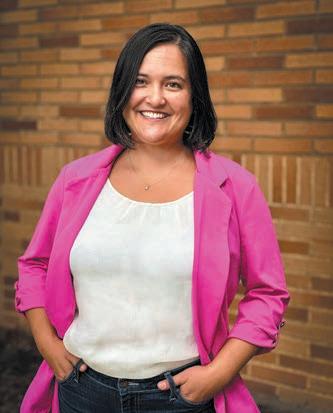
Tiffany Koyama Lane’s background as an educator gives her unique insight into the challenges kids and families are facing. Aside from being a K-5 teacher at Sunnyside Elementary, Koyama Lane is an organizer for her union, the Portland Association of Teachers.
Before mounting her run for office, she volunteered with the Preschool For All measure, which voters passed in 2020. The county program now offers free, culturally responsive preschool for 3- and 4-year olds.
Her policies and priorities are centered on people, not politics. She shared her experience of seeing a large encampment near her school get repeatedly swept and displaced with no positive outcome.
“I watched this group of people and their things get swept back and forth several times between Sunnyside and Laurelhurst Park,” Koyama Lane told the Mercury. “No one thought that there should be an encampment next to an elementary school. But until we provide real, genuine options for housing–not a night in a jail bed that doesn’t exist, or a fine levied on someone who is already broke–a camping ban is just shuffling people around and making life a little bit harder every step of the way.”
Koyama Lane is not only empathetic, she’s curious, collaborative, and outgoing. Those are traits that will be essential to ensure the city’s new Council listens to and reflects the needs of constituents and that
Koyama Lane is someone who can hold herself and others accountable, while building coalitions that will help move our city forward.
our new governing system truly works to serve Portlanders.
We think Koyama Lane is someone who can hold herself and others accountable, while building coalitions that will help move our city forward.
Other Impressive Candidates of Note:
Chris Flanary - Our endorsement strike force was majorly impressed with Flanary and it was a tough call deciding how to rank candidates in this district. In fact, we’re still squabbling over it, but at some point, this baby needed to hit the printer. Flanary works for the Portland Housing Bureau and has a background in union organizing. Their deep knowledge of the city’s housing landscape and forthcoming redevelopment projects, as well as the in -
H H H
Dtersection of homelessness, addiction, and behavioral health could be vital as Portland scrambles to address its often overlapping crises. If elected, Flanary would be the first openly non-binary member of City Council.
Rex Burkholder - To some, Rex Burkholder might be familiar from his time serving on the Metro Council for more than a decade. To most, he’s known as the founder of the Bicycle Transportation Alliance, now known as The Street Trust. Aside from being a major catalyst in Portland’s bike movement, Burkholder also founded the Coalition for a Livable Future. His decades of experience in climate and transportation policy would be invaluable to the city. Not to mention, he’s a pretty nice guy.
Jesse Cornett - Jesse Cornett has an eclectic background. After joining the US Army Reserves and Oregon National Guard, he landed jobs working for Congressman Earl Blumenauer, former Oregon Secretary of State Bill Bradbury, and later, for Sen. Bernie Sanders. More recently, he’s served on the board of Oregon Recovers and worked as a college professor. Cornett’s history centers on civic engagement (he worked on the Oregon Bus Project, now known as Next Up) and the pursuit of progressive public policy. ■
istrict 4 covers Southwest Portland, downtown, and pockets of Southeast Portland like Sellwood. It’s economically diverse, stretching from the densely forested west hills, to the skyscrapers downtown, and the antique shops that dot Sellwood. Homelessness, downtown revitalization, and public safety top the issues impacting District 4. Councilors elected in District 4 will serve two-year terms.
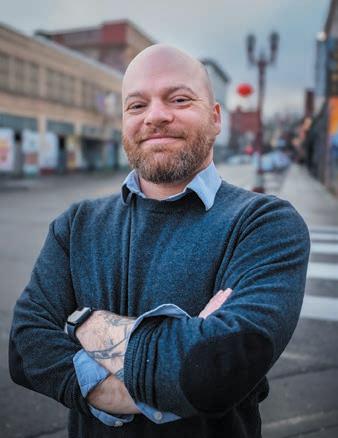
Scholar. Economist. Army veteran. It’s not often you get someone running for local office who checks all those boxes, but Green does just that. He has a PhD in economics and currently works as an economist for
H H H
Bonneville Power Administration. He’s also been known to teach college level economics courses. But at the core of his policy priorities you’ll find more than budgets.
Green’s plan for Portland is built on affordable housing, eviction prevention, environmental stewardship, and livable wages. He’s principled and envisions a city that “leaves no one behind.”
Like every other candidate the Mercury is endorsing, Green wants to expand Portland Street Response, a program that has struggled under current city leadership. He’s a self proclaimed “progressive with unabashed pro-labor, pro-climate, pro-renter and pro-young people politics.” Amen to all of that.
Progressive values aside, what’s refreshing about Green is his unwavering love for the Rose City and his optimistic vision for its future. Those who love this city don’t take kindly to others trash-talking it.
Green is no exception. Where others see only urban blight and visible homelessness, he sees a city bound by natural beauty and plenty of potential that owes its residents— housed or not—dignity and compassion.
“People don’t form opinions of civic life in a vacuum, but do so in a milieu of cultural construction,” Green told the Mercury recently.
Green has the guts to challenge the harmful narratives rooted in half-truths and won’t bend to the will of those who’ve historically been given outsized voice and credibility in city politics.
Make no mistake, the best way to combat the cynicism and misperceptions is with


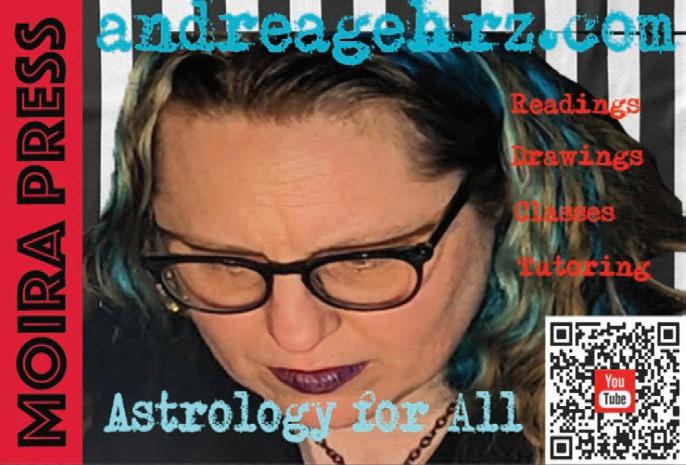




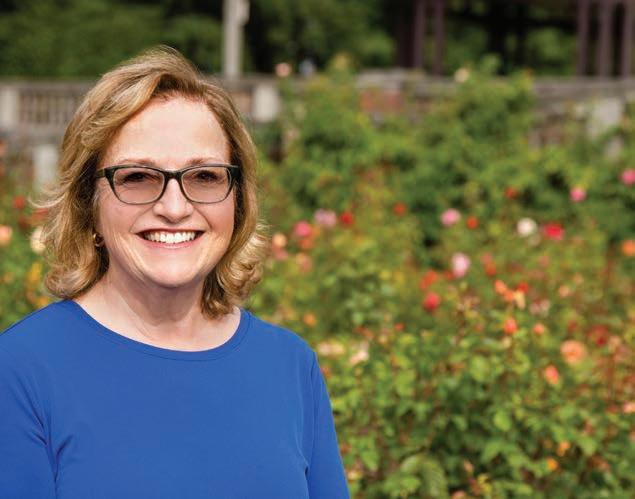



good governance. We agree with Green when he says “the best version of Portland is still waiting to be built, and we will build it together.”
based on the number of donations received. Lykins and the other candidates who took part in the “donation swapping” contend it was meant as a harmless gesture and a mutual show of support.

The donation swapping may have been a goof, but on all other fronts, Lykins’ judgment appears sharp. He’s one of the few candidates acknowledging that downtown Portland needs more than just office buildings if it’s going to rebound from the pandemic.
“Downtown is the victim of shortsighted property developers who sought to maximize short-term profits by planting a virtual monocrop of office buildings,” Lykins told . “We bring downtown back to life by introducing diverse land uses.”
We’re with Lykins on this one. In fact, we’ve been banging this drum around the office for so long, we now have an echo chamber of wannabe city planners.
Bottom line: we trust Lykins to make smart, informed decisions and to show up for the residents in District 4.
our climate resiliency. She’s also aware of how the city’s codes and permitting process needs to be retooled to facilitate more affordable housing development.
Having worked for the city for over a decade, she knows how things work, and where they don’t.
“I’ve seen first-hand how it’s really impossible to deliver good services when you have dysfunctional management,” Silkie told the Mercury. The same goes for the city’s lack of fiscal stewardship when it comes to its nonprofit partnerships.
“The problem is, with so many different entities involved there is no accountability and there is excess overhead because every subcontractor takes a management cut,” Silkie pointed out.
With her institutional knowledge and proclivity for identifying issues and finding practical solutions, we trust Silkie can help weed out the bugs in the system and set us on the right track.
Lisa Freeman - Lisa Freeman, who has a robust background in government transition at home and abroad, is beyond qualified for a seat on City Council. Her sensible, forward-thinking approach to Portland’s biggest issues is noteworthy. When she’s not campaigning, you can often find her volunteering with her local homeless outreach group, Southwest Outreach.
The primary reason we didn’t rank Freeman in our top three is because there are lingering questions about her time working for the city’s Community Safety Division. We recently learned that she was named in a labor complaint filed with the state by a former assistant who alleges Freeman treated her unfairly because of her race. Freeman fervently denies that allegation and notes she raised her own concerns about racism in the workplace that affected her colleagues. ■
Lykins was among the first to enter the District 4 race last year and he’s been running with full steam ever since.
His background and accomplishments are wide-ranging. He has a graduate degree in philosophy and a PhD in leadership and policy studies. Lykins previously taught at the University of Hong Kong as an assistant professor for five years.
Arguably his most impactful endeavor is the after-school program he founded and leads, Rose City Chess. The program reaches hundreds of kids, including those without the ability to pay. It’s the kind of activity he says he never had access to growing up.
Lykins is candid about his upbringing. The child of young parents, including a mother who struggled with substance abuse and mental health disorders, Lykins recalls getting by on free school lunches and often being fed by his friends’ parents.
His lived experience and research background have shaped his push for evidence-based solutions to everything from addiction and public drug use, to crime prevention, housing stability, and public safety.
Lykins isn’t perfect (again, politicians are people), but he’s proven himself to be transparent and accountable. He says he immediately returned donations he received from other candidates when several candidates were making small donations to each other’s
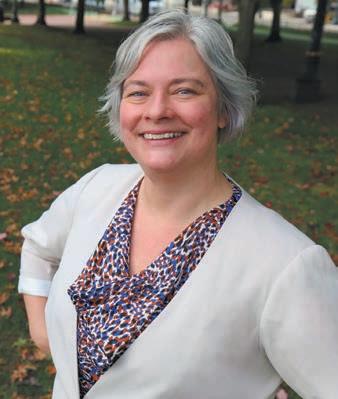
Like the other District 4 candidates ranked here, Sarah Silkie has an impressive academic background (by coincidence, not because we only like people with doctorate degrees). Silkie has a PhD in environmental engineering and currently works for the city of Portland’s permitting and development department. She’s also a union steward for PROTEC17.
Silkie grew up in Portland and says the city shaped her and her values. When she first launched her campaign, she told the Mercury she’s eager to use her technical
Progressive values aside, what’s refreshing about Green is his unwavering love for the Rose City and his optimistic vision for its future. Those who love this city don’t take kindly to others trash-talking it.
campaigns to help them reach the threshold for funding from the Small Donor Elections program. He gave the candidates’ money back after learning the donations might be against election codes and Small Donor program rules, because the program pays out
background and collaborative approach to help find solutions and shape sensible policy for Portland.
She’s committed to addressing the city’s environmental issues like the long-overlooked Ross Island, and helping bolster

Impeaching a government official is (and should be) a last resort—a consequence to be used in only the most dire circumstances, and with the utmost thoughtfulness. That said, Oregon is the only state in the nation that does not have an effective set of tools at hand to remove an errant official, without the process taking an inordinate amount of time and financial resources. Currently Oregonians can recall an official—but not until after months of gathering signatures, spending a lot of money to put it on the ballot, and then hoping enough people turn out to vote in favor of it… at which point the official could be already out of office.
Measure 115 hopes to remedy that by granting partial impeachment powers to the state legislature—but only in a limited set of circumstances. First, impeachment would only happen in the case of certain offices: the governor, secretary of state, treasurer, attorney general, and labor commissioner. And then only if these people committed what amounts to “high crimes,” “corrupt conduct” or “willful neglect” of their duties. Secondly, impeachment would only be possible after two-thirds of the House agree to bring the charges, followed by an impeachment trial, and culminating in yet another two-thirds vote from the Senate to seal the deal.
And even with all that, Measure 115 still doesn’t go very far compared to other
states—many of which give their lawmakers the ability to impeach members of their legislature or state judges.
Sadly the days of corrupt politicians leaving office following media scrutiny and public shame are mostly over. While both former Governor Kitzhaber and Secretary of State Shemia Fagan left their offices willingly, many conservative politicians would almost certainly refuse to step down so gracefully. So while this is a small toolbox for the state to use in the fight against political corruption, Measure 115 is a necessary one—and an effective stick to wield in certain scenarios.

Jumping into the murky world of legislator salaries, Measure 116 seeks to amend Oregon’s constitution to create and empower an Independent Public Service Compensation Commission that will set the salaries of elected state politicians—from judges to state representatives to the governor.
The Oregon Legislature put this one on the ballot, seeking voter approval to adopt a practice found in other states, which arguably removes the supremely awkward endeavor representatives face when they try to give themselves a raise.
Supporters tasked with campaigning for Measure 116 argue that politicians shouldn’t be able to set their own salaries. In reality,




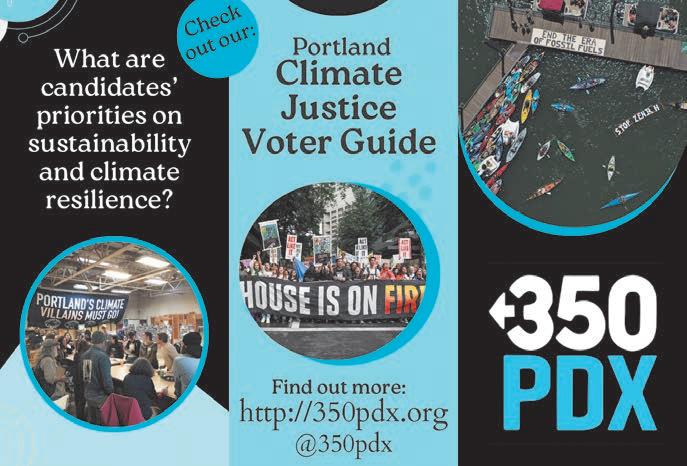




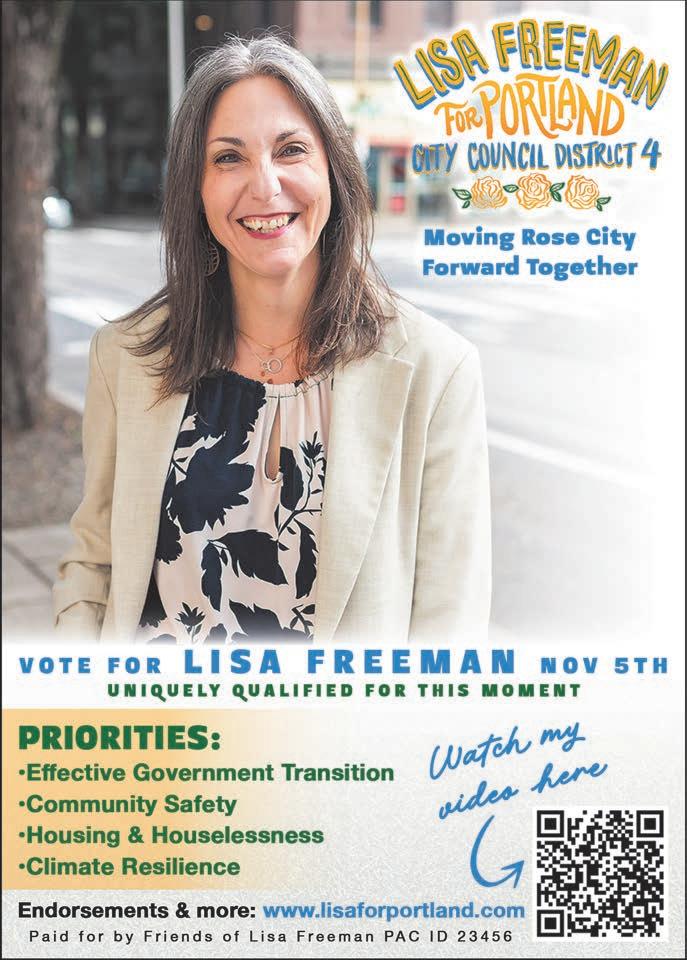
many of Oregon’s top offices haven’t seen a salary increase since 2014—our governor’s salary is the fourth worst in the nation. As a result, the legislature has lost a number of well-liked rising stars in recent years, for the frustrating reason that they can’t afford to support their families on such low wages.
This is an important problem to fix, but Measure 116 has drawn criticism for being too undefined and unilaterally powerful. The text dictates, “salary determinations would be final and would not be subject to review or modification by the Legislative Assembly, the Governor or any other official.” Then, despite that tone of finality, the measure fails to define clearly important considerations, like: Who would serve on the commission, and how would they be appointed?
broad support being elected, rather than the candidate with the largest base of zealous supporters. Recent data shows that in American RCV elections, 75 percent of voters ranked the winning candidate in their top three choices.
Opponents also argue that ranked choice voting is too confusing and overwhelming for voters. Bullshit.
State Senator Kate Lieber, who served on a committee appointed to explain the measure, told the Mercury that “the Legislature will create the guidelines for who gets appointed to the commission—as well as data points needed to inform their decision making.”
Lieber also said that the intention is to have human resources professionals serve on the commission to lend their expertise. That sounds great, but there’s no guarantee that’s the type of folks we’d end up with. For a measure that purports to give power to Oregonians, this might just lock it away with a group hand-picked by lawmakers. And the only way to undo it, if we don’t like it, is to pass another constitutional amendment.

For years, voters in places like Alaska, Maine, and New York City have been successfully using a ranked choice system in their elections. Portland voters are already using it in this election and Multnomah County will start using the same process in 2026. Now, Oregon has the chance to implement a system that gives residents in every corner of the state more options and more voice in elections.
Proponents of ranked choice voting (RCV) say this method of casting and tallying votes leads to candidates with more
In simple terms, it’s the difference between getting stuck at a brunch spot you hate because three of your friends have crappy taste, versus landing at a place that’s decent.
Ranked choice supporters also say it encourages more civility in elections. We’re already seeing evidence of that in Portland, where council candidates are teaming up and asking voters to rank all of them. When voters don’t have to pick just one person, candidates are less prone to mud-slinging and attacks on opponents (though let’s not pretend we don’t love a good cat fight).
Opponents of Measure 117 claim the system complicates and slows down the tabulation process for elections offices. Multnomah County’s elections director says they’ll do fine. More importantly, the measure wouldn’t go into effect until 2028. That should be plenty of lead time. Opponents also argue the process is too confusing and overwhelming for voters. Bullshit. That’s an insult to our collective intelligence. We think it actually takes the pressure off voters to pick “the right” candidate among several.
This measure won’t change Oregon’s primary elections, which will remain closed to unaffiliated voters, but maintaining elements of an old system doesn’t make it worse. Another quirk: As written, it wouldn’t apply to state legislative races. There’s no good reason for that and we’re not sure why this measure–one of several being referred to voters by the Oregon Legislature–was written to exclude those races. Still, we’re not losing anything here, and we owe it to ourselves to invest in a system that helps chip away at political divides.

turn a blind eye to poverty, and Measure 118 is the malfunctioning switchblade. (Sorry, we’re too poor to bring anything but a knife to this fight.)
The proponents of Measure 118 want to give every single Oregonian (regardless of age or income) an estimated $1,600 per year that would be funded by a new corporate tax on really big businesses. Now you may be saying, “Don’t threaten ME with a good time!”, but hold on… there are a number of catches. While this is being billed as an example of “Universal Basic Income,” which simultaneously kicks big corporations—who regularly get out of paying their fair share of taxes in various ways—right in the scrabble bag, there’s a problem: $1,600 is nice, and could definitely help lots of folks in the short term… but at best it’s a BandAid, and all this energy could be focused on making sure employers pay every working Oregonian a living wage. Now that’s a sustainable income.
But we get it: that doesn’t help a lot right now. However, here’s problem number two with Measure 118: Why the fuck are we giving $1,600 to EVERYONE? Like, includ-

This wouldn’t be necessary if federal agencies would just hurry up and reclassify cannabis as a less dangerous drug. However, it’s been over two years since President Biden directed members of his cabinet to start a review of the drug’s schedule level, and [checks DEA schedule] it’s not happening anytime soon.
We have a saying around here at the Mercury : “Don’t bring a malfunctioning switchblade to a gunfight.” In this analogy, the ones with the guns are capitalistic shitheads who
This “basic income” needs to be less universal, and more specific—as in getting the money to those who actually need it.
ing Phil Knight who will just use it to buy gold-plated golf tees or drop it into some Republican’s campaign account? This “basic income” needs to be less universal, and more specific—as in getting the money to those who actually need it.
Problem number three: Oregon state law says that corporations only have to pay the higher of two taxes—the tax on their profits, or the corporate minimum tax. Now, Measure 118 would skyrocket the cost of the corporate minimum tax, so big business would have no choice but to pay that one in order to fund all those $1,600 rebates. So if they’re pumping all their money into that bucket, they’d be pumping significantly less money into Oregon’s general fund, which provides fundamental services like K-12 public education (which we all agree remains ridiculously underfunded), health care, child care, and public safety. Newsflash: We need MORE investment in social services and schools—not less.
Now proponents will yell that the legislature can simply “reverse engineer” the laws surrounding corporate taxes after Measure 118 passes. Okay… OR proponents can write a measure that helps the working poor, gives money to only those who need it, and kicks corporations in the scrabble bag while working with the laws we currently have. In short, Measure 118 is a partially good idea written by mostly good people… but poverty needs more than a malfunctioning switchblade in this fight.
In the interim, cannabis is still considered a Schedule I drug on a federal level, and that has complicated the unionizing efforts of workers in the industry, who find themselves seeking federal labor protections, even as the very nature of their work could be considered illegal.
Spearheaded by United Food & Commercial Workers (UFCW) Local 555, Measure 119 came before voters via a signature campaign, financed by the local’s PAC. The text ties a cannabis business’ OLCC license to an existing “labor peace agreement” between the business and a “bona fide labor organization.” Both those terms appear to be fairly broad, the latter’s description—for all its length—includes language like “any organization of any kind .” While critics of Measure 119 say adding additional paperwork and cost to cannabis businesses overburdens the struggling industry, UFCW Local 555 Political Director Michael Selvaggio compares it to worker’s compensation insurance. “Once the measure passes, there’ll be a list or a directory, and it’ll be relatively easy to find someone to enter into that agreement,” Selvaggio told the Mercury
Additionally, just because an employer has an LPA with one union, doesn’t mean workers need to organize with that specific one, should they choose to. Especially considering the scattershot of professions found in cannabis labor—retail, manufacturing, research and development—workers are free to seek out, or form, one to fit their needs. “The labor peace agreement does not bind the employees,” Selvaggio says.
UFCW Local 555 tried to pass a version of this through the legislature in 2023, only to have it sent to committee over concerns that the LPA guidelines were not constitutional, so this time around the union took most of them out, allowing business and bona fide labor unions to tailor an agreement that works for both of them.
The situation remains that we might be waiting a while on federal cannabis rescheduling, and the Mercury won’t ask cannabis workers to also wait on their rights. ■




















OPEN 5PM-2AM 7 DAYS A WEEK
10/25 - SOUL STEW’S FREAKY FRIDAY
DJ AQUAMAN & THE SOUL MECHANIC
10/26 - MONSTER MASH-UP
DJ TAKIMBA
10/31 - BOLLYWOOD HORROR XXII
DJ ANJALI & THE INCREDIBLE KID
11/1 - 1ST FRIDAY SUPERJAM
DJ MAGNETO & MR. JEIGH
11/2 - ELDRIDGE GRAVY & THE COURT SUPREME + THE QUICK AND EASY BOYS

hew! Putting these endorsements together takes LOTS of hard work—and that's on top of our regular excellent reporting. If you use our cheat sheet, consider showing your appreciation for the Mercury with a small contribution (portlandmercury.com/contribute), please, and thank you! And just so ya know, the Mercury does not endorse in uncontested races, and any political advertising the Mercury receives has absolutely no bearing on our endorsement decisions.—eds
tip: You can rank up to six candidates, but do not rank any candidate you do not support!)
41st District: Mark Gamba
43rd District: Tawna Sanchez
48th District: Hoa Nguyen
49th District: Zach Hudson
50th District: Ricki Ruiz
14th District: Kate Lieber
22nd District: Lew Frederick
25th District: Chris Gorsek
28th District: Dacia Grayber
33rd District: Shannon Jones Isadore
34th District: Lisa Reynolds
Secretary of State Tobias Read
State Treasurer Elizabeth Steiner
Oregon Attorney General Dan Rayfield
Suzanne Bonamici US Representative, 3rd District: Maxine Dexter US Representative, 5th District: Janelle Bynum US President: Kamala Harris
BY ABE ASHER
Portland has been helping fund campaigns for its city offices for years, and its impact this year has been especially significant: In an election with more than 100 candidates, the Small Donor Elections program has doled out more than a million dollars and served as a lifeline for candidates without the financial means to get themselves elected on their own.
But the program itself has been a source of controversy during the campaign, with the city making changes to accommodate the expanded candidate field. Here’s a primer on how it all works.
The Small Donor Elections program is Portland’s effort to give regular residents a chance to fund campaigns and reduce the influence of big money in local politics.
If you are donating to a candidate in Portland, the city will match the first $20 you donate to a candidate for city office at a rate of up to 9-to-1—meaning that if a candidate has raised $1,000 from small donors, they could end up with as much as $9,000 in their campaign account. A number of cities and states in the country have similar public financing systems.
Mitch Green, a candidate for City Council in District 4, said he wouldn’t be running if not for public financing.
“I’m not rich,” Green said. “I wouldn’t have been able to loan my campaign money and do that kind of thing outside of the Small Donor program.”
Portland’s current program was passed via a City Council vote in 2016 and modeled on New York City’s public campaign financing program. A previous public campaign financing program in Portland was repealed by voters after a case of fraud in 2010.
How do candidates qualify for matching funds?
Any candidate running for mayor, city council, or auditor is eligible to participate in the program.
To start unlocking matching funds, candidates had to declare their intent to participate with the city by late August, take a mandatory training, and receive a minimum number of qualifying donations. Candidates for mayor must receive a minimum of 750 qualifying donations to begin receiving funds, while City Council candidates must receive at least 250 donations.
Do all candidates for city office participate in the program?
They do not! Participation in the Small Donor Elections program is optional, and while most candidates choose to participate, not all do. Candidates who opt into the program must pledge to limit individual campaign

contributions to $350 and only accept donations from individual people or small donor committees.
Mayor Ted Wheeler, for instance, did not participate in the program during his re-election bid four years ago. Candidates who do not participate in the program can accept larger individual donations.
This year, about 50 candidates received matching funds from the program. During the 2020 election cycle, just 23 candidates participated and received funds.
There are a lot of candidates running for office this year. How can the city afford to fund all of them?
By limiting the amount of matching funds the city distributes to candidates.
Last year, in anticipation of what has turned out to be the most crowded election in the history of the city (118 candidates!),
Small Donor Elections program director Susan Mottet asked City Council for a budget increase to fund up to $750,000 in matching funds for mayoral candidates and up to $300,000 in matching funds for City Council candidates.
But the Council did not approve that money, and as a result, in January, the Elections Commission voted to limit matches for mayoral candidates to $100,000 and matches for City Council candidates to $120,000.
The reduction in matching funds— which is effectively a reduction of the public’s ability to shape the election—has been a significant subplot in the campaign, with mayoral candidate Rene Gonzalez
complaining in May that the reduction of matching funds has made a “bit of a joke” of the mayoral race.
Green also voiced frustration with the situation, saying the cap “should have been higher.”
“It’s unfortunate that the current City Council didn’t give Susan, the staff, and the program resources that she asked for, because it has been very difficult to manage all this,” Green said. “Their shop has done extraordinary work with very few resources.”
As late as June, officials with the Small Donor Elections program were floating ideas to inject more money into campaigns of participating candidates, including raising the cap on in-kind contributions from political organizations and committees and allowing small donor organizations to participate in the program if they are mainly funded by donations of $350 or less instead of $250 or less.
One City Council candidate, Jesse Cornett, told Willamette Week the program should seek private funding—a step one Portland Elections Commission member said the commission did not feel was “viable.”
Which candidates have raised the most money from the Small Donor Elections program so far?
Three of the city commissioners running for mayor, Gonzalez, Mingus Mapps, and Carmen Rubio, have already received the maximum of $100,000 in matching funds for their campaigns. So has mayoral candidate Keith Wilson, who has pledged to end unsheltered homelessness in Portland in
his first year in office.
While the Small Donor program has shelled out nearly half a million for mayoral candidates, more than $1.8 million has gone to candidates running for one of 12 Council seats currently up for grabs.
In District 1, Steph Routh was the only council candidate to unlock $80,000 in matching Small Donor funds from the city as of late September. Another five candidates in that district each got $40,000.
In District 2, which covers much of North and Northeast Portland, former cidery owner Nat West was the only candidate to receive $80,000 by late September. Another 11 candidates in that district hit the $40,000 mark in matching funds.
A pair of progressives are leading the way in the Southeast Portland-based District 3, where Angelita Morillo has unlocked $80,000 in matching funds and local teacher Tiffany Koyama Lane has raised a field-leading $120,000. Another four candidates in the district, including former City Commissioner Steve Novick, have all hit the $40,000 level.
In District 4, which includes the westside and a pocket of Southeast Portland, Olivia Clark leads the way with $80,000 in matching funds. Nine more candidates have reached the $40,000 level.
Green said he’s on the cusp of unlocking another $40,000 in matching funds after using the bulk of his first $40,000 to hire a campaign manager and field staff. If he’s elected, he said he wants to see the program grow.
“It’s been super critical,” he said. ■
How did Portland decide to adopt its unique commission form of government? You can blame a hurricane.
BY JOE STRECKERT
After more than a century, Portland is transitioning away from a commission form of government. Compared to other major cities, it’s been an unusual method of governance, with each member of the Portland City Council running for at-large positions and then taking on roles as the head of different city bureaus.
But it wasn’t always this way. Portland adopted its current form of government in 1913. Before that, the city government was very different. The city was divided into different representative districts known as wards, and each ward sent a representative to the City Council. Portland also elected a mayor who acted as its chief executive. The way wards were drawn and representatives were allocated tended to favor some parts of the city more than others. “It was historically weighted to the west side, where the original population was,” says Carl Abbott, professor emeritus at Portland State University and author of several books on Portland history.

it. They saw their interest as being better served by the ward system.”
Johnston notes that while the commission form of government had progressive champions back in 1913, it didn’t necessarily lead to progressive outcomes.
In the early 20th century the lopsided ward system buckled under two pressure points: changing population, and widespread corruption. During that time Portland’s population grew primarily on the east side. However, the boundaries of wards and the number of representatives for those wards didn’t change to reflect the changes. “The east side of the city wasn’t adequately represented,” says Abbott. “The east side was the rising middle class neighborhoods… the system hadn’t caught up with the changing demographics of the city.”
There was also the small matter of corruption.
“Portland’s government had gotten some very bad publicity. A vice commission had investigated all the places of sin in downtown Portland and identified how widespread that was,” says Abbott. Prohibitions on gambling and sex work were publicly flaunted, and outsiders began to notice. “The New York Bureau of Municipal Research did a report on Portland that was scathing,” says Abbott. In the early 20th century Portland had a reputation as being one of the worst-run cities in the nation.
Merely electing a reformer as mayor wasn’t enough. In 1905 Portland elected Harry Lane as a progressive mayor, but Abbott and Johnston both characterize his tenure as largely ineffective. He couldn’t get meaningful change past an entrenched City Council.
If Portland was going to change, it would need a whole new way of doing things.
“[The change in government] was a reaction to what progressive reformers consid-
ered to be the corruption, disorganization, and inefficiency in what they thought was inherent in the council model,” says Robert Johnston, professor and director of the Teaching of History Program at University of Chicago Illinois and author of The Radical Middle Class, a book about Portland in the early 20th century. “The critique was that these council members could be bought off by monied interests very easily. It was easy to pick off members if nobody except their constituents cared. Whereas if you brought everyone together in a city-wide election people would actually notice…. Corruption would be much less likely.”
“Effectively, starting in the late teens and early ‘20s, the conservative business forces within the city felt very comfortable having a commission form of government.”
– Professor Robert Johnston
Reformers found a new system in Galveston, Texas.
“On September 8th, 1900 we had [a hurricane that] we refer to now as ‘the 1900 Storm’,” says Dwayne Jones, the executive director of the Galveston Historical Foundation. “It was devastating…. They lost count of how many people died.” Jones estimates the loss of life as somewhere between 8,000 and 15,000 people.
Galveston had a system with wards and a mayor, but after the 1900 hurricane, the city government had ceased to function, both because of the loss of infrastructure, and because several government officials
had themselves died. Galveston needed to organize itself quickly. City elites proposed a new form of government to get the city back on its feet.
Jones characterizes Galveston’s post-hurricane system as prioritizing efficiency. “They broke it down by function,” he says. Instead of city officials being elected to represent geographical areas, commissioners would oversee different city services and jobs. The idea was to get the city moving again as quickly as possible, and rebuild in a way that the older system supposedly couldn’t. Jones also notes that this empowered citizens who were struggling in-post hurricane Galveston. “They could approach the person who was in charge of a function and felt like they were getting a better response,” he says.
Reformers looking for an alternative to electing ward representatives saw Galveston’s commission form of government as a more modern, efficient, and professional way to run a city. Reformers like Lane, the former mayor, hoped that by emphasizing functionality in government rather than geographic representation, they would do away with the old system of favors, social relationships, and machine politics.
“There was a sense that it was a more efficient way to run a government,” says Johnston. “There was some elitism in that, but at the same time it does take expertise and talent to run a government. If you wanted to have a municipal utility system, you actually had to have people who knew how utility systems worked.”
In May of 1913, Portland voted to change up city government in a close election. The new charter passed by a mere 292 votes, out of 34,342 votes cast.
“It was the new [middle class] neighborhoods on the east side… that helped provide the margin of victory,” says Abbott. “The affluent and middle-class tended to vote for it. The working class people did not vote for
“A lot of historians think that the move to this commission form throughout the country was profoundly anti-democratic.” he says. “Council members may have been corrupt, but at least they did serve their communities. And it was much more likely that, say, a plumber or a barber would be elected to the council. But if you only had five people, business executives and lawyers had much more city-wide visibility. And that happened in many cities. They moved away from lower-class and working-class representation.”
Johnston notes that the entrenched elites and machine politicians didn’t care for the new government, but it didn’t take long for them to acclimate themselves to it. One of the first mayors to take advantage of the new system was George Baker, an old-school conservative politician who became Portland’s longest serving mayor.
“When Baker took power in 1917 he was very happy to be able to control positions on the commission,” says Johnston. “Effectively, starting in the late teens and early ‘20s, the conservative business forces within the city felt very comfortable having a commission form of government.”
However, according to Abbott, the commission form of government was eventually successful at achieving some of its goals.
“If you looked at Portland over the last 50 years it was very efficiently run with good services and a very low level of corruption,” he says. He also notes that by the 1970s most city bureaus were largely professionalized, with city commissioners relying heavily on the staff to keep things running.
Commission forms of government became less and less common as the years passed. Cities that had opted for this modern and professionalized system tended to move toward other forms of local governance, including Galveston.
According to Jones, Galveston moved away from the commission system in order to become more democratic.
“I believe [the end of the commission system] had to do with racial politics,” he says.
“By the mid-twentieth century Galveston had a very large African-American community…. There were questions about serving that community. Breaking it down allowed for them to serve, as well as women.”
Time will tell whether similar democratic reforms play out in the same way for Portland. ■




BY JULIANNE BELL, LINDSAY COSTELLO, SHANNON LUBETICH, AUDREY VANN
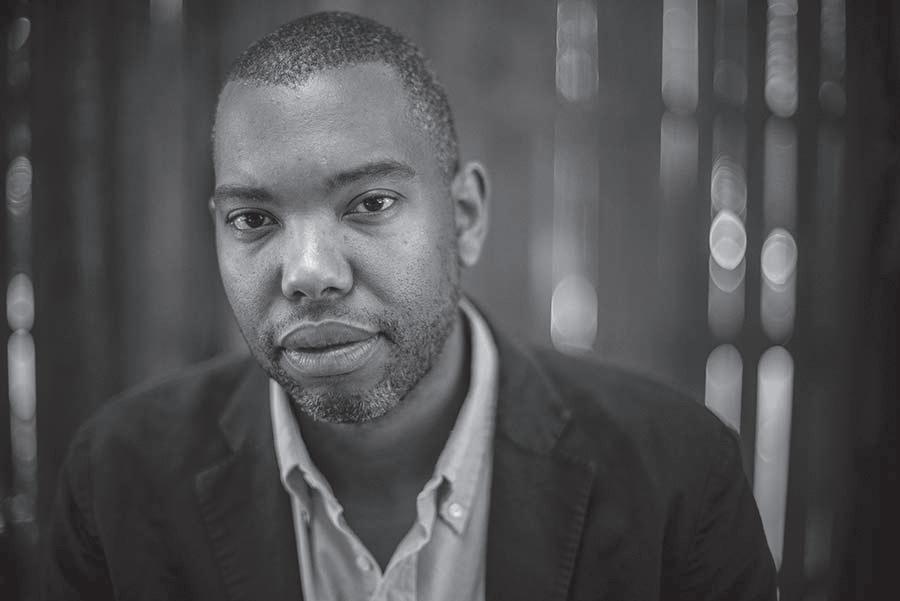
Sometimes it seems like the name Ta-Nehisi Coates has become synonymous with contemporary nonfiction itself. (In the words of writer Charles Mudede, “Ta-Nehisi Coates is not perfect.” He is not, in Mudede’s eyes, a great novelist.) Luckily for us, he’s back with another book of essays, his first nonfiction work in almost 10 years. The Message follows Coates to three sites of conflict— Dakar, Senegal, Columbia, South Carolina, and Palestine—to meditate on the destructive historical legacies of book banning, racism, and nationalism. Arlene Schnitzer Concert Hall (Tues Oct 22) LINDSAY COSTELLO

Japan-born, Hawaii-raised playwright Lava Alapai’s Middletown Mall transported audiences to the safe, pastel stucco surroundings of the malls of yore, but her latest play sets its sights higher—like, into the cosmos. The stage is set in the (fictional) quaint Oregon logging town of Cabbotville, where a queer kid’s disappearance gives way to all sorts of theories: Did he encounter aliens, or saddle up and ride off on a magical ostrich? The Event! is billed as a “delightfully playful experience,” so head to a performance if you’re in need of some out-ofthis-world optimism. Artists Repertory Theatre (Oct 13–Nov 10) LC
Bringing together over 100 artists inspired by Pacific Northwest nature, the Sitka Art Invitational offers a scenic forest of works across mediums,
with sales split evenly between the artist and the Sitka Center for Art & Ecology’s nonprofit programming. Plan for a crowd—more than 2,000 local art lovers attend the show each year, and live music might draw an even bigger gaggle for the event’s 30th anniversary this year. Oregon Contemporary (Oct 18-20) LC

The Aces’ latest Halloween-themed sketch comedy show celebrates the duo’s nuanced, physical technique and promises to “take horror and hilarity to new heights.” Audiences describe local laughers Shelley McLendon and Michael Fetters’ long-lasting act as “comedy for smart people,” revealed through their sorta-contemplative, sorta-wacky style. If you want to catch up, grab tickets to the comedy creep show early—The Aces’ performances tend to sell out. Siren Theater (Oct 19-Nov 2) LC
I live for creepy, atmospheric literature, and Jeff VanderMeer’s bestselling Southern Reach trilogy, which has earned praise from the likes of Stephen King and whose first book Annihilation inspired the hit 2018 film adaptation of the same name starring Natalie Portman, is like nothing I have ever read—so unsettling, uncanny, and full of dread that I had to stop reading it under the covers late at night. The modern classic series will finally reach a thrilling conclusion with the highly anticipated publication of Absolution, the fourth and final installment, which answers lingering questions about the story of Area X. Here’s your chance to see VanderMeer speak about his terrifying masterpiece with Pulitzer finalist and Swamplandia! author Karen Russell. Powell’s City of Books (Sun Oct 27) JULIANNE BELL

Portland Mercury Undisputed Geniuses of Comedy Arlo Weierhauser and Kate Murphy get straight-up diabolical in this live game show, which sees the chucklesome pair answer a series of “truly evil” questions on stage. (There is no better time to entertain devilry than during the Halloween season, after all.) The audience (and special guest Ben Harkins, Portland’s Funniest Person 2024) will then decide which of the responses is less evil. It’s kinda like a Catholic confessional, except FUN and non-judgy. Okay, maybe a little judgy. You’ll have to go to find out. Plus, there’ll be prizes—the perfect antidote for a little moral corruption. Siren Theater (Wed Oct 30) LC
Throngs of book lovers will flock to the Portland Art Museum (and neighboring venues) on November 2 for the Portland Book Festival, which always promises an unmatched lineup of buzzy wordsmiths. The festival is a who’s-who of the literary world: This year’s event includes standout local writers like Chelsea Bieker and Oregon Poet Laureate Anis Mojgani alongside Palestinian poet Mosab Abu Toha, novelists Richard Powers and Rachel Kushner, and singer-turned-picture book author Ani DiFranco. Plus, Portland Book Festival Cover to Cover, a week (October 28–November 3) of “neighborhood literary encounters,” will return for its third year, bringing more book-loving vibes to spots across the city. The festival will include discussions with over 80 authors across 10 stages, food truck vendors, and a book fair. Why not stop by to snag a book you’re actually excited to read? Various locations (Sat Nov 2) LC

In the ongoing hurricane that is true crime content, Criminal is the eye. It’s one of very few ongoing podcasts of the genre that neither sensationalizes nor looks away from difficult subject matter— instead trying to explore the whole picture of humanity’s interaction with crime by capturing the perspective of victims, crime scene cleaners, Indigenous tribe members trying to recover family remains for museums, and even divers tasked with searching the La Brea tar pits for murder weapons. Host Phoebe Judge delivers each story with composed empathy and charming humanity. As a result, Criminal regularly makes “Best of” lists and was even recognized by the ACLU of New York for its critical look “that often leaves you questioning the criminal legal system and always shows there is more to the story.” The live show offers new stories, presented by Judge, with photo and video elements. Revolution Hall (Thurs Nov 14) ARTS AND CULTURE EDITOR SUZETTE SMITH

If time is a flat circle, Godfrey Reggio’s Koyaanisqatsi is a set of interlinked rings in a magician’s grab bag. The rollercoaster tone poem collages the cyclical nature of humanity with straight-up soul-stirring time-lapse photography. It was a quick (and surprising) sensation upon its 1983 release, so the cosmic flick, whose title is drawn from a Hopi word meaning “life out of balance,” became the first entry in the Qatsi trilogy. Philip Glass’ hypnotic score is basically crucial to the Koyaanisqatsi experience, so I’m stoked to witness the Phillip Glass Ensemble and Oregon Symphony perform it live for this concert-slash-screening. Arlene Schnitzer Concert Hall (Thurs Nov 14) LINDSAY COSTELLO
For 45 years, Portlanders have ducked into the basement of Epworth United Methodist Church, just north of the Hawthorne

This year, Bella Organic Farms is expressing gratitude to teachers and school staff with a corn maze design spelling out “Thank you, Teachers” and complimentary admission! For the rest of us, it’s $10 on weekdays or $12 on weekends to wander the 2.7-mile path, enjoy a hot cup of apple cider over a game of trivia about the maze, and compete to win a Clue-inspired puzzle. You can also hitch a free hayride over to the pumpkin patch to pick out your own gourd for carving, painting, or simply placing on your porch for max autumnal vibes. If you’re a thrill seeker, stop by after dark on Fridays and Saturdays for Bella’s haunted corn maze experience. Bella Organic Farm (Through Oct 31) SHANNON LUBETICH
Kai, a public, by-reservation lunch program serving up Japanese and pan-Asian cuisine. Exemplifying the concept of keirō 敬老, or respect for elders, Ikoi no Kai is volunteer-helmed and includes more than just food—attendees sing songs, play games, and pluck kotos. Made with Love: 45 Years of Ikoi no Kai honors the history of the city’s lesser-known dining experience with text elements, artifacts, a video installation, and cute dumpling sculptures displayed in the museum’s window. Japanese American Museum of Oregon (Through Jan 5, 2025) LC

For those who have been waiting for new music from Haley Heynderickx for six long years, I have news for you! The Portland-based singer-songwriter has finally announced an as-yet-unnamed new album due November 1, dropping two stunning singles to get us through October. Like her critically acclaimed debut, I Need to Start a Garden the new
politicians and brands co-opting the craze are annoying as hell. Regardless, I’ve tried not to let it ruin my faithful love for the British hyperpop star. I will never claim to be an OG Charli fan (I hopped on board when her 2020 masterpiece how i’m feeling now dropped) but I will forever brag that I saw her at the quaint Crystal Ballroom before this massive arena tour. Charli will be joined by her frequent collaborator/BFF Troye Sivan for their highly anticipated Sweat tour. I’m praying for a mashup of “1999” and “Rewind.” Moda Center (Tues Oct 22) AV
Ah, finally an opportunity to persuade the masses to listen to Richard Thompson! As he is a silver-haired British man known for guitar solos, Thompson isn’t the typical musician I would ride for. However, this man has played on so many flawless albums that I’ve begun to think he’s the special ingredient. Along with his start in the pioneering folk rock band Fairport Convention, various solo albums, and duo albums with his wife Linda, Thompson has also played with Nick Drake, Françoise Hardy, Shirley Collins, John Cale, and Sandy Denny—the list goes on. At this point, if I hear a good album that was recorded between 1967 and 1987, it’s practically a given that Thompson played on it. The legend will grace Portland with songs from his new album Ship to Shore, which features drummer and Fairport Convention bandmate Dave Mattacks. Revolution Hall (Mon Nov 4) AV

are reuniting for a US tour to support a reissue of their 2004 album Crimes It’s been a solid decade since Blood Brothers briefly reunited for LA’s FYF Fest in 2014, and the group hasn’t toured properly since 2007. This show sold out FAST—Portlanders obviously remember those wild and sweaty, strangely wholesome, technically wonderful shows of yore. Can the group’s co-vocalist Jordan Billie still lift emo punks out of the audience as they duet scream lyrics into his microphone? Is every breath still a bomb? Revolution Hall (Tues Nov 12) SS
I was first turned on to the French electronic project La Femme by pure boredom. It was a slow, gloomy day on the job as a record store clerk, and I became restless listening to the same Joan Baez records on a loop (if you’ve ever been tasked to pick music for eight hours a day at a retail job, you know how grueling it can be). I impulsively opened a copy of La Femme’s 2013 debut Psycho Tropical Berlin and threw it on the turntable. The moment that the opening track “Antitaxi” began humming, I felt revived as the sun shined through the windows and customers poured through the doors. La Femme’s retro-futuristic indie rock is the perfect shot of audio caffeine with hypnotic rhythms inspired by postpunk and yé-yé pop. Just in time for the sobering late autumn months, the ensemble will stop by Portland to support their sixth album, Rock Machine. Revolution Hall (Fri Nov 22) AV

singles “Foxglove” and “Seed of a Seed” look to the natural world to ponder philosophical questions about love and life. If you’re a fan of indie folk gems like Angel Olsen, Shana Cleveland, and Feist, then I bet you’ll adore Heynderickx’s emotive vocals. And if you’re a listener of classic folk guitarists like John Fahey and Robbie Basho, you’ll appreciate her melodic and complex finger-picking. She will take over the Aladdin Theater for two nights alongside avant-pop harpist Lily Breshears (night one) and folk singer-songwriter Andrew Stonestreet (night two). Aladdin Theater (Oct 18–19) AUDREY VANN

At this point, Charli XCX’s sixth studio album has left us with more questions than answers: Is brat summer dead? Is Kamala brat? What color is her underwear? The only thing I know for sure is that
If it looks like I haven’t slept in weeks, that’s that me espresso. Seriously, my brain has had every song from Sabrina Carpenter’s Short n’ Sweet on replay since the album’s release—I’m losing my mind! The songs are flirty, witty, and sex-positive with outrageously catchy choruses (if you haven’t listened to the track “Bed Chem,” cue it up). Plus, the infusion of classic country and folk flourishes makes Carpenter’s sound unique among pop divas. I’m calling it now—between her genre-blending songs and luscious blonde locks—she’s this generation’s Nancy Sinatra. Don’t miss the IRL Bratz doll (she’s 5 feet tall and known for wearing towering platform shoes) on her highly anticipated arena tour alongside rising glam phenom Declan McKenna. Moda Center (Thurs Nov 7) AV
Chillwave jack of all trades Ernest Weatherly Greene Jr., aka Washed Out, will stop by to support his latest album Notes from a Quiet Life. The album pulls conceptual inspiration from abstract visual artists like Donald Judd, Cy Twombly, Barbara Hepworth, and Henry Moore, as well as his newly embraced quiet life in the Georgia countryside. “Experimenting with painting and sculpture helps my music,” he explains. “I don’t want to look back on my life one day, and be like, ‘Oh, it was all about maximizing productivity’—I want to enjoy this.” Revolution Hall (Thurs Nov 7) AV
I’m screaming like Johnny Whitney over here because Seattle hardcore band the Blood Brothers
Zach Bryan isn’t like the other men in contemporary Top-40 country music—he’s cool. Bryan leans into the sound of classic, folk-leaning country greats like Blaze Foley and Guy Clark with poetic lyricism and sparse instrumentation. He also collaborates with cool people—Kacey Musgraves, Maggie Rogers, and Bon Iver, to name a few. Plus, he despises Ticketmaster, naming his 2022 live album All My Homies Hate Ticketmaster, as well as posting multiple tweets about “[burning] Ticketmaster to the ground” for their exorbitant ticket prices and fees. I told you, he’s cool! Bryan will take over the Moda Center for two consecutive nights on his Quittin Time tour with support from indie folk artists Matt Maeson and country troubadour Levi Turner (who was the first artist signed to Zach Bryan’s label, Belting Bronco Records). Moda Center (Nov 26–27) AV
It seems like every legacy artist is billing their tour as a “farewell” these days. It’s difficult to decipher which are marketing ploys and which are truly their last (Elton John’s Farewell Yellow Brick Road tour included 330 shows across five years). Considering that Cyndi Lauper hasn’t performed in Portland in over a decade, I’m willing to bet that this Girls Just Wanna Have Fun Farewell tour is the real kind. Don’t miss your (potential) last chance to see the new wave icon perform her classic hits like “True Colors,” “Time After Time,” “Girls Just Wanna Have Fun,” and countless others. Personally, I am hoping to hear the uncredited theme song for Pee Wee’s Playhouse, in which Lauper sings about Puppetland in her best Betty Boop impersonation. Moda Center (Sat Nov 30) AV
Celebrate the harvest season with a day full of autumnal activities like hay rides, pumpkin picking, and caramel apple snacking. Admission to Topaz Farm’s fall fest is free on weekdays and $12 per person on weekends in an effort to reduce crowding and maximize fun—much better than waiting ages at the tire swing or hitting a backup in the sunflower maze! You can pay a little extra to treat yourself to U-pick flowers or your kiddos to a ride on the cow train. Topaz Farm (Through Oct 28) SHANNON LUBETICH
Leaning into the fact that the movies Halloweentown and Twilight were partially filmed in St. Helens, the charming city transforms into a macabre paradise with a month’s worth of festivities. You can check out themed attractions like the pumpkin lighting and haunted house, be surprised (and maybe a little scared) by roaming entertainers, meet aliens, and throw your witch’s hat into the ring during the costume contest. Expect plenty of sugary snacks, themed beverages from “elixir stations,” and oddities galore, including a haunted hot rod show and séance sessions. Stars of the Halloweentown and Hocus Pocus franchises stop by on October 12th and 13th, but every weekend has the magic to make you feel like a star in your very own Disney Channel Original Movie. St. Helens (Through Oct 31) SL
Nothing says Portland quite like watching costumed characters paddling inside giant hollowed-out gourds in a series of races. This longstanding local tradition is just a part of a fun-filled weekend that starts on Saturday with a giant vegetable weigh-off and festive brews at Stickmen Brewing Company. Sunday morning kicks off with a 5K Regatta run and walk, followed by the pumpkin races at noon and 2 pm. Other Sunday activities include pumpkin bowling, pumpkin golf, pumpkin tic-tac-toe (are you sensing a theme?), a kids’ costume contest, and a “zombie shootout” game. Tualatin Commons (Sun Oct 20) SL
Portland’s annual anime and Japanese culture con celebrates over 20 years in the Pacific Northwest with three days of panels, workshops, karaoke, cosplay (including a chess game and cabaret show), a “Japanese maid cafe experience,” and more. The KumoriMarket will sell official merch and fan creations from art to tabletop games and plushies. The con itself is named after our infamous weather pattern (kumori means “cloudy” in Japanese), which we love! Oregon Convention Center (Nov 8–10) SL

Since its inception in 2012, Vancouver, British Columbia-based recipe developer and food photographer Holly Nilsson’s wildly popular website Spend with Pennies has established itself as a staple for daily cooking. Now, Nilsson has released her debut cookbook Everyday Comfort, which contains a compendium of cozy dishes like seared pork chops with creamy spinach gnocchi, chicken mushroom and rice soup, and shrimp peanut noodles, all of which sound ideal to hunker

down with during the Big Dark. She’ll drop by the Beaverton Powell’s for a meet-and-greet to promote the release. Powell’s Books at Cedar Hills Crossing (Fri Oct 25) JB
Just in time for Thanksgiving (and the subsequent holidays), Urban Craft Uprising will host this specialty food show for the sixth year in a row, promising over 100 local vendors hawking everything from CBD chocolates to wine and from spirits to artisan hot sauce (and yes, there are free samples). If you work up an appetite while shopping, a selection of food trucks will be on site to fuel your browsing journey with delicacies like paella and sushi burritos. This year will also feature cookbook signings with several authors. The Redd on Salmon (Sat Nov 9) JB
Ever aspire to be the type of domestic deity who lovingly cans their own preserves? Make your dream a reality with this sliding-scale class hosted by Portland Fruit Tree Project and Oregon State University expert preservationist Danita Macy. Sip wine and non-alcoholic beverages and snack on cheese and crackers as Macy schools you in the fundamentals of jam-making—you’ll get to take home two jars from the class made from fruit harvested from Portland’s “urban canopy,” while the rest will go toward other PFTP community programs and fundraisers. Though the fruit varieties are subject to change due to weather and harvest, the November 9 class is slated for “quince time and perhaps persimmon.” Food Innovation Center (Sat Nov 9) JB

The world is your cheese plate at this celebration of all things cured meat and fromage. At the door, you’ll be greeted with a tasting glass and charcuterie board, and then left to your own devices to wander around grazing and curating the snack platter of your dreams with samples from vendors like Beecher’s, Cascadia Creamery, Ekone Oyster & Seafood Products, and Alpenrose Dairy, paired with sips from producers like Westward Whiskey and Willamette Valley Vineyards. The Leftbank Annex (Sat Nov 23) JB ■


BY DAN SAVAGE

I’m a gay man in his early 30s who’s into sex stripped down to its most basic elements: tops come in, fuck me, come and go. I’ve moved to a new city. One guy in his mid-twenties came over, and we had awkward but passionate sex like that. We chatted a little afterward. I went to his apartment to see him a week later, and we did it again. It was hot; we had chemistry. Turns out, he’s also new in town. He’s from a conservative part of the country and says I’m the second man he’s ever had sex with. He’s got a lot of things I look for in romantic partners: smart, cute, soft-spoken, driven, and into his job. The bad part is that he’s in management training for a problematic fast-food company, and while he’s fairly apolitical, he says he will “probably” vote for Trump.
While there are certainly plenty of gay conservatives, I feel like he’s someone who hasn’t seriously given a lot of thought to politics outside of his strong belief in free enterprise. This isn’t someone who thinks a lot about intersectionality or who has interrogated the way capitalism exploits. He wants to be a good boss. You said once not to fuck Republicans because they should go fuck themselves. But I feel like there might be something here I can draw out of him. At the very least, his desire for kinky gay sex might make him willing to hear me out about my sharply divergent politics. But I don’t want to entertain someone who just wants his cake (my ass) and the license to eat it (his abhorrent politics), too. But the sex is good, and I like the idea of fixing him. What to do?
Aroused Slut Sees Ultimate Potential
For decades, ASSUP, I have urged sane gay men not to fuck gay Republicans — gay Republicans can go fuck themselves — but in 2015, I singled out one gay Republican in particular that I didn’t want other gay men fucking: Tim Miller, former campaign staffer for John McCain, former spokesman for the Republican National Committee, and at the time of my tweet, communications director for Jeb Bush. Seeing as Tim is no longer a Republican (but still a gay man), and seeing as my position on fucking gay Republicans hasn’t changed (just say no), I thought Tim might be able to offer you an unbiased answer. Despite my having urged other gay men not to suck Tim’s dick (without effect, it seems), Tim graciously agreed to weigh in. His response follows…
Yo ASSUP.
As a former Republican who Dan once tried to cockblock on account of his political views — unsuccessfully, I might add (very unsuccessfully) — I appreciate where your head is. Your instinct is downright humanitarian. It’s in line with the message Barack Obama delivered at the DNC convention. No, not the dick joke, the part where he said, “Everyone deserves a chance, and even when we don’t agree with each other, we can find a way to live with each other.” And here you are giving this hate chicken middle manager a chance to live in you! It’s a beautiful instinct really. Who knows, with your vice grip on his dick, maybe this young gay conservative might blossom into a coconut-pilled podcast host who eviscerates any MAGA moron that dares cross his path like yours truly.
On the other hand…
It’s 2024, not 2014. Donald Trump
attempted an insurrection. He’s currently advancing a racist conspiracy about Black immigrants abducting and eating house pets. He is a worthless shart stain with no redeeming qualities or virtues and that’s been abundantly clear to anyone with a brain for at least nine years now. Being for Trump at this point… it’s not exactly the same as just mindlessly supporting Tom Tillis. It’s an act of active malice or supreme stupidity.
So, like you, ASSUP, I’m torn. Not a great quality in an advice columnist but unfortunately for you Dan passed your question off to a substitute.
I guess my ruling comes down to a practical calculation. If he lives in a swing state, hold your hole hostage until he pledges to support Kamala. We can’t fuck around with so much on the line. If he doesn’t live in a swing state, well, give it a few more whirls, at least until he reveals himself to be intentionally awful. Who knows what could happen, right? After all, we are the ones we’ve been waiting for, maybe your hole has the change he seeks.
— Tim Miller
I wanna thank Tim — both for offering you some advice, ASSUP, and for eviscerating MAGA morons five days a week on The Bulwark’s flagship daily podcast — and I wanna officially lift my fagwa against his dick: gay men everywhere can suck Tim’s dick without incurring my wrath.
I also wanna expand a bit on something Tim said: can your hole — can anyone’s hole — change a person? While I think some people are too far gone for hole (or pole) to save (you can’t fuck the Nazi out of someone), some people don’t ever think critically about political beliefs instilled in them by rightwing families or churches until challenged by someone they’ve just fucked and wanna fuck again. There’s something mag-
ical about the combination of sexual attraction, limerence, and oxytocin, the “love hormone” that floods our systems during really good sex. When all three come together, ASSUP, it can open a person up in surprising ways. So, while it took the nomination of Donald Trump for Tim Miller to see the GOP for what it was (and Tim has gone on to do amazing and important work in the fight against Trump and Trumpism), for other former gay Republicans it was something a guy said to them during their refractory period — that moment when minds and asses gape open — that made the difference.
So, you have my blessing, ASSUP, to keep fucking this guy. But to assuage your guilt (and avoid my wrath), you should gently draw this man out about his politics (and his fast-food preferences) after he unloads in you. (There’s no better time to get someone to, um, interrogate the way capitalism exploits.) If thinking a little more deeply about his vote is the price he has to pay to keep unloading in you — if he knows he’s going to have to defend the indefensible when he sees you again — he may wind up voting for Kamala Harris along with you and me and Tim and all the other gay men out there with their heads screwed on straight.
You’ve got a little less than three weeks to fix this guy, ASSUP, so we’re gonna need you to douche daily and spend as much time in this man’s apartment — and on this man’s dick — as you can between now and November 5th. Your country is counting on you.
Tim Miller is the author of Why We Did It: A Travelogue from the Republican Road to Hell. Follow him on Twitter @timodc and Threads @timmillergram.
GOT PROBLEMS? YES, YOU DO!
Email your question for the column to mailbox@savage.love!
Or record your question for the Savage Lovecast at savage.love/askdan! Podcasts, columns and more at Savage.Love
H H H
Despite what some silly adults may say, ranked choice voting is easypeasy, lemon-squeezy! If you can count to six, then YOU TOO can play the ranked choice voting game. Simply read the questions below, and then rank your choices from one all the way up to six! (You can also rank fewer choices… that’s up to you.) Want to see how others voted? Then fill out this page at portlandmercury.com! NOW LET’S… GET… RANKING!






Bánh Mì
Cubano
Ice Cream Sandwich
Hot Dog Sandwich

Mayor McCheese

Mayor of Halloween Town

Mayor “Expired Shrimp Platter from Safeway”

Mayor “Baby Chick Wearing a Top Hat”

Oscar Mayor Weiner

Rene Gonzalez
